Bolcom and Joan Morris sing Lazy Afternoon
- "Track17" from Unknown Album by Unknown Artist. Released: 2025. Track 17.
LAZY AFTERNOON
FROM BROADWAY HIT TO INTERNATIONAL STANDARD
LAZY AFTERNOON, the breakout hit from THE GOLDEN APPLE , the MOROSS/LATOUCHE iconic musical masterpiece, is over 6 decades old. Yet, we find recent recordings from superstars to rising stars every month. Hundreds of artists have recorded it with new releases and new interpretations published all the time. This page brings attention to many of these artists and allows us to pay tribute to them. We regularly add new finds.
To listen to the Lazy Afternoon YouTuble recording for each featured artist, click on the Play button at the end of each biography.
MABEL MERCER
MABEL MERCER — arguably the supreme cabaret artist of the twentieth century — was born in England and emigrated to the United States at the outbreak of World War II. She was a featured performer at Chez Bricktop in Paris, performed Le Ruban Bleu, Tony’s, the RSVP, the Carlyle, and the St Regis Hotel in New York, and eventually hosted her own room, the Byline club.
By the 1930s she was the toast of Paris, introducing her inimitable style of singing to adoring audiences and beguiling such steadfast admirers as Ernest Hemingway, Gertrude Stein, F. Scott Fitzgerald, Cole Porter, and the Prince of Wales.
World War II brought her to America where she began a series of engagements at New York’s finest supper clubs.
Midnight at Mabel Mercer’s, which featured LAZY AFTERNOON by JEROME MOROSS was hailed by Stereo Review as one of the best recordings of the previous twenty years.
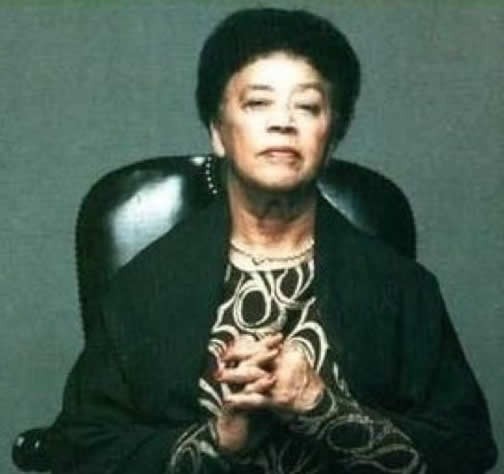
In 1983, President Ronald Reagan presented Mabel Mercer with the Presidential Medal of Freedom at a White House ceremony. In bestowing America’s highest civilian honor upon her, the president described Mercer as “a singer’s singer” and “a living testament to the artfulness of the American song.” Mabel Mercer died on April 20, 1984
RANEE LEE
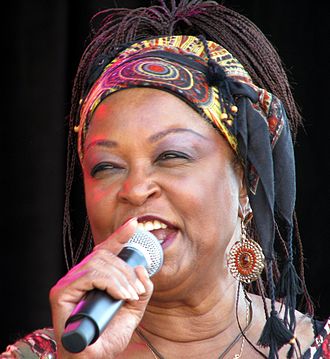
RANEE LEE, American born, is now celebrating over 40 years in Montreal, Quebec, where she enjoys a successful, multi-faceted career as one of Canada’s most popular jazz vocalists, an award-winning actress, a songwriter, and a proud author of children’s books.
Throughout her career Ranee has performed with many jazz notables, including Clark Terry, Bill Mayes, Herb Ellis, Red Mitchell, Milt Hinton, Oliver Jones and Terry Clarke, to name a few.
She is on the music faculty of McGill University’s Schulich School of Music.
Among her many albums is her most recent “What’s Going On,” an inspired and deeply moving collection of originals and standards, including JEROME MOROSS’S LAZY AFTERNOON.
DANNY BACHER
DANNY BACHER, vibrant vocalist, soprano saxophonist, actor and comedian, was also an award-winning songwriter and entertainer in the fullest sense of the term. His untimely death in 2024 deprived the world of an exciting singer and creative performer.
Along with a busy touring schedule and working at venues such as the Blue Note, Birdland, Feinstein’s 54 Below, Jazz at Lincoln Center, and Town Hall, he had performed several times at Carnegie Hall and most recently alongside the legendary Michael Feinstein. Bacher released two studio albums as a leader, “Swing That Music!” and “Still Happy” which includes JEROME MOROSS’S breakaway hit from the musical THE GOLDEN APPLE, LAZY AFTERNOON.
A recent recipient of the prestigious Margaret Whiting Award, Bacher was also nominated for best male vocalist in the 2019 National Jazz Times reader’s poll along with Harry Connick, John Pizzarelli, and Tony Bennett, and in 2020 placed in the top 3 in the country. Along with Kurt Elling and Gregory Porter.
JOHN THADE
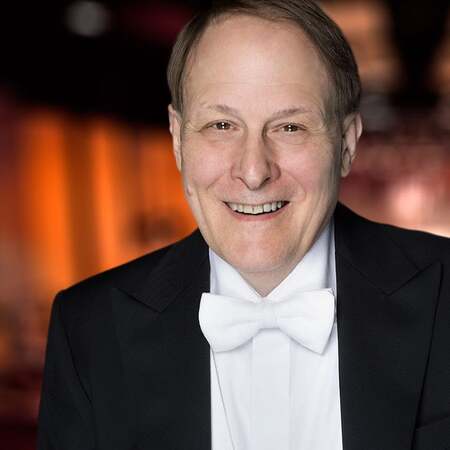
JOHN THADE, Zurich-based American tenor, has recently released an exciting double CD album, “A Song Sounds Inside Me,” featuring favorite opera, operetta and Broadway hits sure to appeal to music lovers around the globe. Thade includes in his compilation JEROME MOROSS’S famous hit from the musical “The Golden Apple,” LAZY AFTERNOON.
John was born in New York City into the famous musical family of Marta Eggerth and Jan Kiepura. Initially, John sang the lighter repertoire Performing Classic Broadway show tunes in elegant Manhattan super clubs earning enthusiastic reviews from the New York Press.
Moving to Zürich in 2012, John made his debut with a program of Broadway and Operetta favorite at the Jecklin Forum in Zürich with additional concerts following in Switzerland. In 2015, he was invited to Perform in Bergedorf/ Hamburg an evening of Operettenmelodien which was well received by the press and audiences alike.
JOE HENDERSON
JOE HENDERSON (sax) teamed up with this all-star jazz ensemble including HERBIE HANCOCK (piano), JACK DE JOHNETTE (percussion), RON CARTER (bass) and MIKE LAWRENCE (trumpet).
Performing LAZY AFTERNOON music by JEROME MOROSS, the group puts a new standard of “cool” in this sultry interpretation.
WYNTON MARSALIS
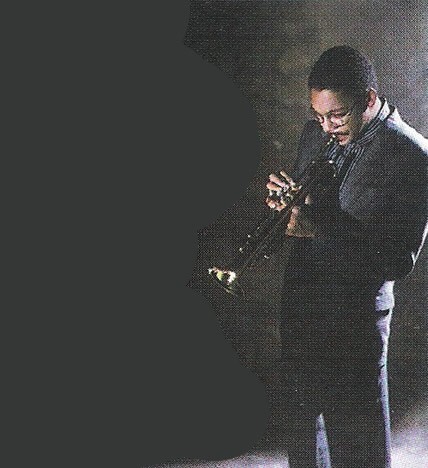
WYNTON MARSALIS is one of the most brilliant and versatile artists of our or any age. He is an American trumpeter, composer, teacher, and artistic director of Jazz at Lincoln Center. He has promoted classical and jazz music, often to young audiences. Marsalis has won at least nine Grammy Awards, and his Blood on the Fields was the first jazz composition to win the Pulitzer Prize for Music. He is the only musician to win a Grammy Award in jazz and classical during the same year.
ERNESTINE ANDERSON
ERNESTINE ANDERSON, Houston-born, began singing gospel music in church before moving with her family to Seattle. She toured with R&B star Johnny Otis and in 1952, began working with Lionel Hampton, with whom she sang at President Dwight Eisenhower’s inauguration. Settling in New York, she sang on Gigi Gryce’s 1955 album Nica’s Tempo and released her own debut, Hot Cargo, the following year on Mercury Records. In 1959, Anderson relocated to Los Angeles, where she continued to record for Mercury.
Her 1960 album, “Black Moonlight” includes LAZY AFTERNOON.
Anderson signed with Quincy Jones’ Qwest label. She was nominated in 1993 for a Grammy.
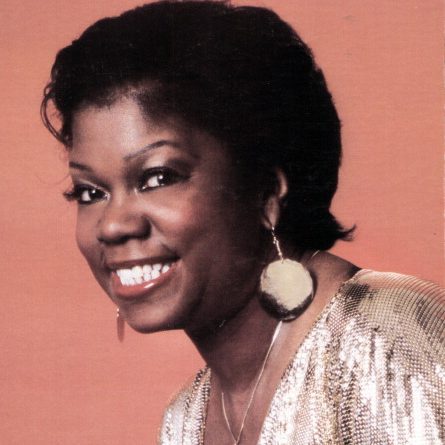
Anderson toured internationally and played many of the great venues in the U.S., including Carnegie Hall and the Kennedy Center, as well as performing at major jazz festivals.
She died in 2016 at 87.
TAWANDA SUESSBRICH-JOAQUIM

TAWANDA SUESSBRICH-JOAQUIM, 25, an exciting rising star among jazz vocalists, grew up in Las Cruces, NM. Her parents filled her home with music from South Africa, folk-pop and classical.
Tawanda discovered jazz later in college where her singing was inspired by jazz legends Billie Holliday, Sarah Vaughn and Nina Simone and contemporary greats
Esperanza Spalding and Jazzmeia Horn, among others.Tawanda competed at the 9th annual Sarah Vaughn International Jazz Vocal Competition aka “The Sassys” in June 2021 at the New Jersey Performing Arts Center. The competition had been delayed due to the Covid pandemic. There, she won 1st prize, sharing honors in a tie.Like SARAH VAUGHN, Tawanda has performed JEROME MOROSS’S LAZY AFTERNOON, now an established Jazz favorite.
Click here: https://youtu.be/lJe7Co1wlcs
Other winners of the “Sassys” whom we have posted include DEELEE DUBÉ (2016) and CYRILLE AIMEE (2012).
HANK JONES
HANK JONES, 5-time Grammy winner who recorded more than 60 albums was one of the most beloved jazz pianists of his age. His death, 10 years ago at 91 left behind a history of influence on all the jazz greats, from Cannonball Adderly to Ella Fitzgerald and so many more. While all are thoughts are focused on our family’s at this time and our future, take a moment to relax with HANK JONES’ recording of JEROME MOROSS’S LAZY AFTERNOON.
SHIRLEY HORNE
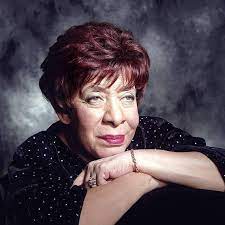
SHIRLEY HORNE collaborated with many jazz greats including Miles Davis, Dizzy Gillespie, Toots Thielemans, Ron Carter, Carmen McRae, Wynton Marsalis and others. She was most noted for her ability to accompany herself with nearly incomparable independence and ability on the piano while singing, something described by arranger Johnny Mandel as “like having two heads”, and for her rich, lush voice, a smoky contralto, which was described by noted producer and arranger Quincy Jones as “like clothing, as she seduces you with her voice”.
GRANT GREEN
GRANT GREEN, guitarist was described by critics Michael Erlewine and Ron Wynn as , “A severely underrated player during his lifetime, Grant Green is one of the great unsung heroes of jazz guitar … Green’s playing is immediately recognizable – perhaps more than any other guitarist.” Critic Dave Hunter described his sound as “lithe, loose, slightly bluesy and righteously groovy.”
Grant Green was born on June 6, 1935 in St. Louis, Missouri and died at the young age of 43.
SARAH VAUGHAN

SARAH VAUGHAN was a comet whose career took off and never slowed down. She sang with all the greats and while called a jazz singer, “Sassy’s” voice defied description. In 1972, Sinatra was quoted as saying, “Sassy is so good now when I listen to her I want to cut my wrists with a dull razor.” In 1990, we lost her too soon at 66.
CAROLINE HENDERSON
CAROLINE HENDERSON, a singer with a global reputation that spans decades, has made Jazz a truly international art form. She was born in Stockholm, grew up in Philadelphia, New York and Paris, and in 1983 she moved to Copenhagen.
As a teenager she sang in various jazz bands, and in 1989 she got her breakthrough in Denmark, which she now calls home. Henderson has released over a dozen albums, including “Don’t Explain” featuring “The Golden Apple’s” LAZY AFTERNOON.
https://youtu.be/hpxdAGF5Lfw
Henderson has won numerous awards and serves as a goodwill ambassador for Unicef with special attention to violence against children.
For those of you who have overlooked her, you are in for remarkable treat.
HOLLY COLE

HOLLY COLE, acclaimed Canadian vocalist, isn’t an artist who falls into any single category. Her smoky voice is sultry, yet she’s ironically humorous and candid while reshaping traditional standards and pop classics.
Jazz is her bedrock, but not exclusively. It’s a sound that helped build her a loyal fan base after she emerged on the Toronto jazz scene in the 1980s. Working with her trio of bassist David Piltch and pianist Aaron Davis, she earned accolades, including Juno Awards for 1993’s Don’t Smoke in Bed and 2003’s Shade. Her music remains deeply inventive and atmospheric, even when drawing upon the classic traditional pop sound of the ’50s and ’60s, as she did on 2007’s Holly Cole.
-MacKenzie Wilson
Her recent album HOLLY features “The Golden Apple” hit LAZY AFTERNOON.
JOHN COLTRANE
JOHN COLTRANE was one of the most famous saxophone players of all time. He was featured in Winner’s Circle, a 1957 album by jazz musicians who came in first or second in “Down Beat’s” critics’ poll of the same year. He selected Jerome Moross’s and John Latouche’s LAZY AFTERNOON for his recording. A great compilation of the greats.
LA TANYA HALL

LA TANYA HALL, American vocalist, is poised to take her place as one of the foremost jazz artists in the world today. Her ability to reinvent the Great American Songbook is amassing glorious reviews from around the globe. “It’s About Time,” featuring Moross/Latouche’s LAZY AFTERNOON (Bridge Records 2008),
Hall’s debut recording, has been heralded as “an impressive debut from one of jazz’s brightest stars,” Jazz.com describes her as “a woman ripe with talent [whose] interpretative skills are a marvel.”
With a very extensive bio, her versatility in a variety of musical genres has allowed her to collaborate with some of music’s most celebrated artists, including Diana Ross, Bobby McFerrin, Harry Belafonte, Michael McDonald, Burt Bacharach, Quincy Jones, Michael Feinstein Aretha Franklin, Rob Thomas, and Patti Labelle. And she has appeared as a soloist in her own right with the American Composer’s Orchestra, the Colorado Symphony and the St. Louis Symphony.
ERIC BIBB
It is easy to point to Eric’s accomplishments. A five-decade career recording with folk and blues royalty. Two Grammy nominations and multiple Blues Foundation awards. . .To meet Eric is to be struck by both his humility and his warmth. There is no pretense in him. He is remarkably centered, his convictions based in the values of the civil rights movement of the sixties. Eric’s music works in service of that dream, holding out a hope for a new world.
Eric carries this mantle honestly. His father, the late Leon Bibb, was an activist, actor, and folk singer who marched at Selma with Dr. Martin Luther King. Eric’s youth was spent immersed in the Village folk scene. Names like Dylan, Baez, and Seeger were visitors to his home. He was deeply influenced by Odetta, Richie Havens, and Taj Mahal. And he has synthesized all of that into his very own style.
From Joe McSpadden
Eric and his father, Leon, sing LAZY AFTERNOON by Moross and Latouche as a duet from Eric’s album ROADWORKS
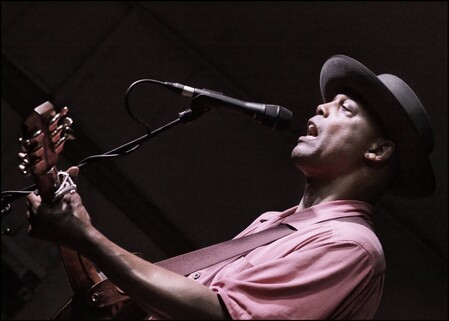
Eric carries this mantle honestly. His father, the late Leon Bibb, was an activist, actor, and folk singer who marched at Selma with Dr. Martin Luther King. Eric’s youth was spent immersed in the Village folk scene. Names like Dylan, Baez, and Seeger were visitors to his home. He was deeply influenced by Odetta, Richie Havens, and Taj Mahal. And he has synthesized all of that into his very own style.
From Joe McSpadden
Eric and his father, Leon, sing LAZY AFTERNOON by Moross and Latouche as a duet from Eric’s album ROADWORKS.
EARTHA KITT
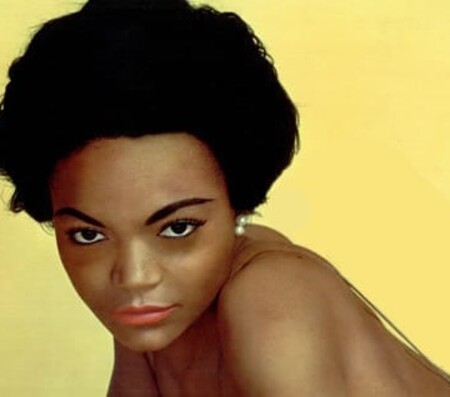
EARTHA KITT, singer, actor, anti-war activist, legend. Her sultry voice was unmistakable with hits like “C’est Si Bon” and “Santa Baby.” She died Christmas Day, 2008 at 81. Here she sings the classic Moross/Latouche favorite, LAZY AFTERNOON,” our holiday gift to you.
https://earthakitt.com/
VANESSA WILLIAMS
VANESSA WILLIAMS, is one of just a few artists to score No. 1 and Top 10 hits on Billboard’s Album and Singles charts in the combined areas of Pop, Dance, R&B, Adult Contemporary, Holiday, Latin, Gospel and Jazz—the latter is where her release, “The Real Thing,” debuted at No. 1 in June of 2009.
Included on the album is LAZY AFTERNOON, adding Ms. Williams to the club of superstar artists who have recorded it.
DEELEE DUBÉ
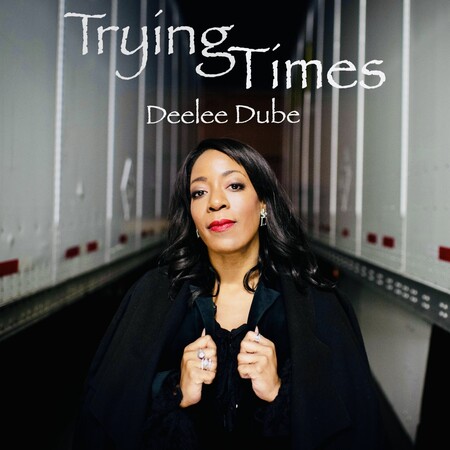
DEELEE DUBÉ (pronounced Doo-beh, accented “é”) made history by becoming the first British Winner and recipient of the 2016 Sarah Vaughan International Jazz Vocal Competition and is one of today’s foremost gifted vocalists to have emerged from the London scene in many years.
Embodying a stellar African musical lineage, the eclectic tastes of a London upbringing and a deep love and respect for the jazz tradition, Deelee possesses what Jazz Times called ‘a warm tone, genuine blues feeling and easy rhythmic authority.’ Deelee’s late father was the famed South African jazz pianist Jabu Nkosi. . She formed her first band at the age of 14. She attended the BRIT School for arts and music, and received formal voice sessions under Anton Browne later studying as a music undergraduate at South Bank University and Morley College with vocalist Clare Foster, and forming the first of many musical relationships with jazz pianist Roland Perrin.
Look for her album TRYING TIMES with LAZY AFTERNOON.
ERICA PAPILLION-POSEY
ERICA PAPILLION-POSEY, versatile vocalist, songwriter and author wraps up our survey of artists for Black History Month. Papillion-Posey is equally at home in the jazz and classical idioms. This Louisiana native is not to be missed on any stage! The release of her 3rd studio album, BETTER ANGELS, April 2019, an 11 track work which boasts 10 original compositions complemented by Papillion-Posey’s own, thought-provoking, introspective lyrics. With each record she continues to evolve, not just as a vocalist but as a noted lyricist, emerging arranger and composer.
Erica Papillion-Posey performs BECAUSE OF THEM, 3rd Annual Women’s History Month Tribute (virtual)an array of jazz standards, made household gems, by celebrated artists: Sarah, Nina, Nancy and some originals form her current LP, BETTER ANGELS with pianist, Mason Margut.
JOYCE DIDONATO
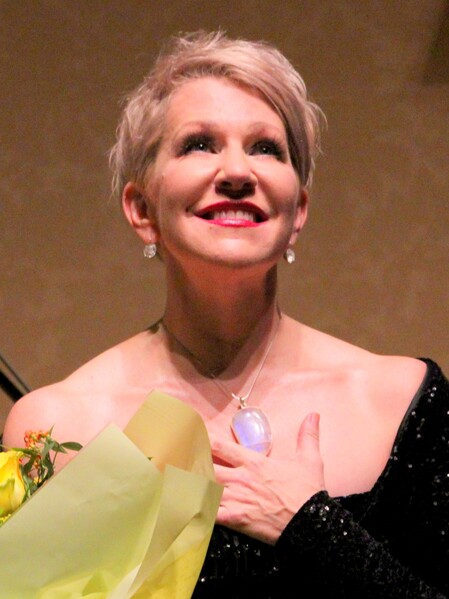
JOYCE DIDONATO, MET Opera superstar coloratura mezzo-soprano performed LAZY AFTERNOON on her album of Broadway and operatic masterpieces, “Joyce and Tony Live at Wigmore Hall.”
Multi-Grammy Award winner and 2018 Olivier Award winner for Outstanding Achievement in Opera, Kansas-born Joyce DiDonato entrances audiences across the globe, and has been proclaimed “perhaps the most potent female singer of her generation” by the New Yorker. With a voice “nothing less than 24-carat gold” according to the Times, Joyce has soared to the top of the industry both as a performer and a fierce advocate for the arts, gaining international prominence in operas by Handel and Mozart, as well as through her wide-ranging, acclaimed discography. She is also widely acclaimed for the bel canto roles of Rossini and Donizetti.
TIM ARMACOST
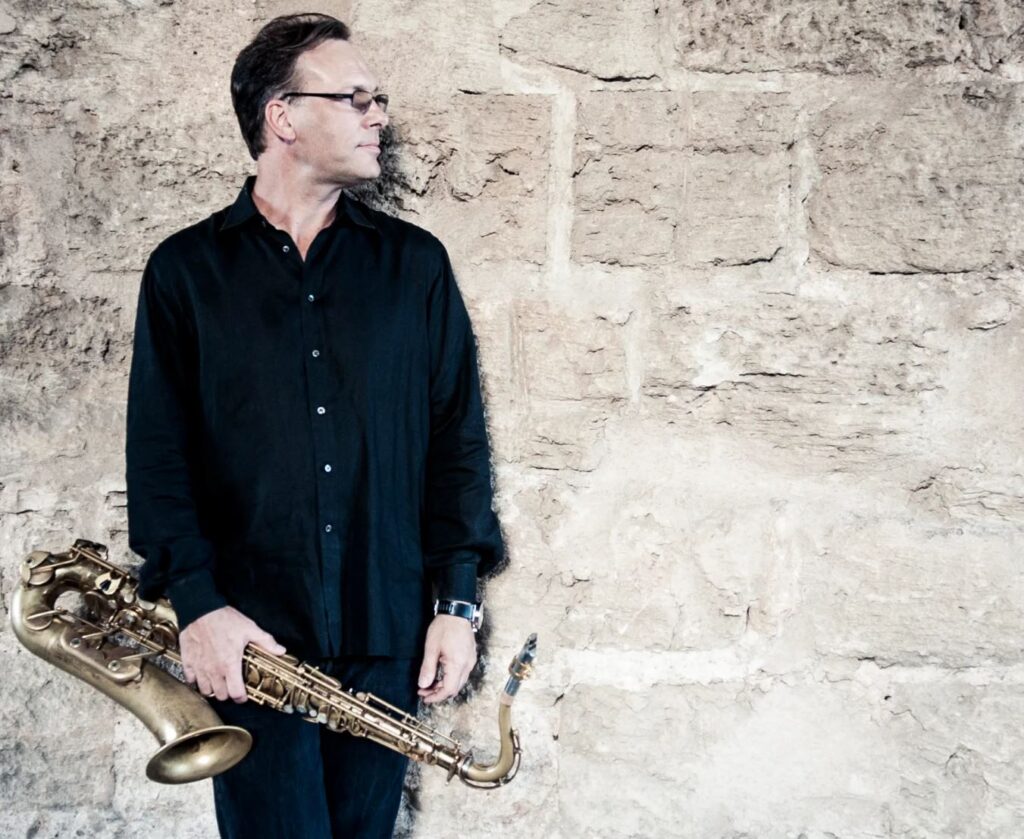
TIM ARMACOST is a jazz sensation. After a life of travel and discovery on three continents, the Grammy-nominated saxophonist brings his unique life experience to improvised music that is as adventurous as it is soulful. Armacost has established himself as one of the most distinct saxophone voices in the jazz world today.
With his recently released album, “The Inevitable Note,” Armacost presents a neatly programmed set of contemporary hard bop with some cracking compositions that suit his new quintet very well indeed. Opening with JEROME MOROSS’S hit LAZY AFTERNOON, the quintet settles into their groove. The theme is delivered with a commanding tenor statement for Armacost before he launches into his first solo of the album.
STEPH JOHNSON

STEPH JOHNSON, San Diego based singer/guitarist and social activist, is an award-winning, multi-dimensional recording artist whose music deftly blends jazz, soul, funk and blues. She’s a captivating performer whose engaging smile is complemented by a lush and distinctive voice.
A shoutout to Steph for her recently released album SO IN LOVE. It’s a 10-song collection of Johnson’s favorite jazz standards and ballads which includes JEROME MOROSS and JOHN LATOUCHE’s American classic LAZY AFTERNOON from their musical THE GOLDEN APPLE. This record features pianist Josh Nelson (Natalie Cole), guitarist Anthony Wilson (Diana Krall), trumpeter Chris Lawrence, bassist Rob Thorsen and drummer Richard Sellers. You can find her music on all digital platforms including Spotify, Apple Music, and can purchase it on her website.
https://www.stephjohnsonband.com/copy-of-albums
STEPH JOHNSON singing LAZY AFTERNOON.
SHEILA JORDAN
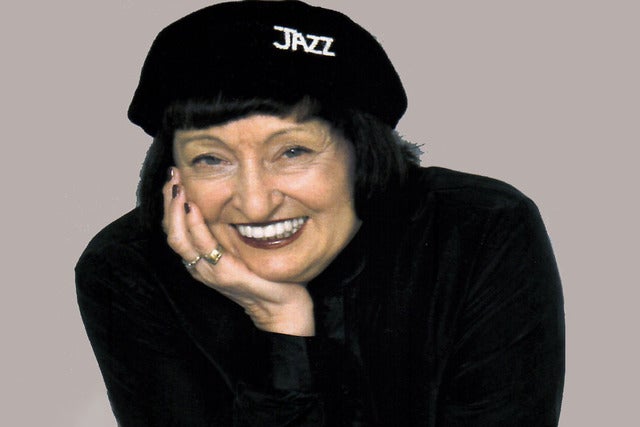
SHEILA JORDAN (born Sheila Jeanette Dawson; November 18, 1928) is an American jazz singer and songwriter. She has recorded as a session musician with an array of critically acclaimed artists in addition to recording her own albums. Jordan pioneered a bebop and scat jazz singing style with an upright bass as the only accompaniment. Jordan’s music has earned praise from many critics, particularly for her ability to improvise lyrics; Scott Yanow describes her as “one of the most consistently creative of all jazz singers.” Charlie Parker often introduced Jordan as “the lady with the million dollar ears.”
CHRISTIAN MCBRIDE of NPR invited her to sit down with him this month to be interviewed for his show, JAZZ NIGHT IN AMERICA. Their conversation was a veneration of what was and what will be in music.
JERRY ORBACH
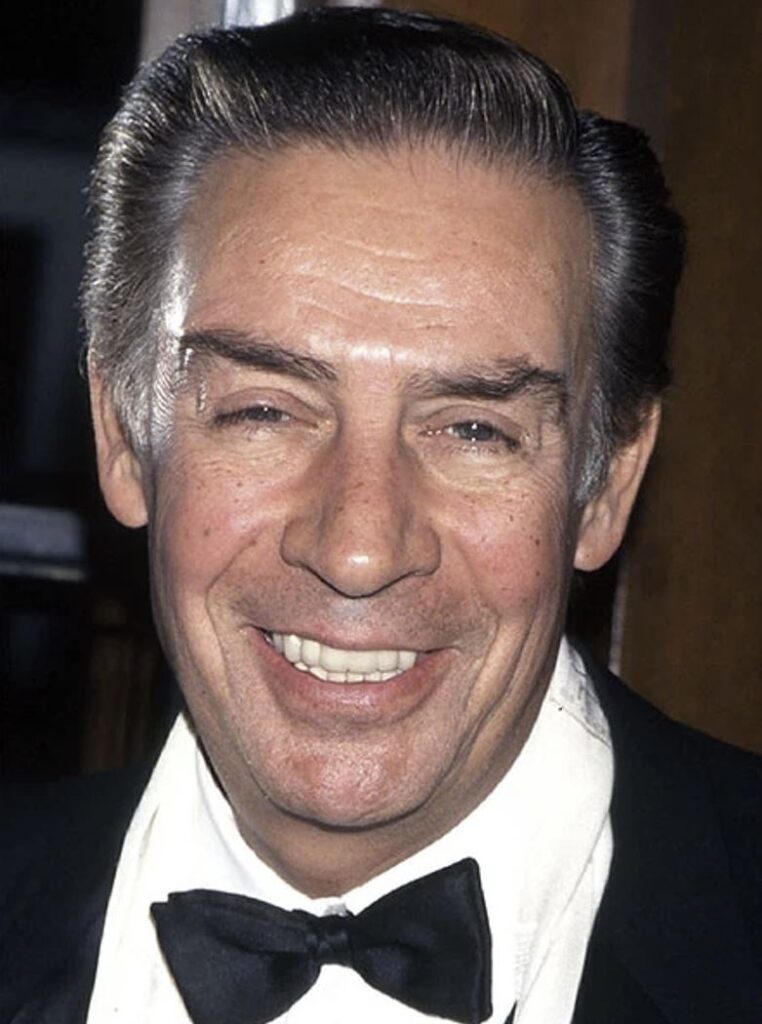
JERRY ORBACH, versatile, award-winning actor, created many iconic roles, from Lenny Briscoe on “Law and Order” to Dr. Jack Housemen in “Dirty Dancing.” His career was launched however not in film but on Broadway where he was the handsome leading man in such all-time hits as “Chicago,” “42nd Steet” and “The Fantasticks.” In addition to his recordings on original cast albums, Orbach released his album OFF BROADWAY in 1963 which features many of his favorites from the Great American Songbook. It includes the classic hit by JEROME MOROSS and JOHN LATOUCHE, LAZY AFTERNOON. He died 19 years ago (December 28, 2004) after a heroic battle against prostate cancer at age 69.
ANAÏS RENO

ANAÏS RENO, Swiss-born jazz vocalist and singing sensation, has marked her career with numerous awards and commendations and has focused her music on championing the Great American Songbook. She already released a second album in early 2024, ANAÏS RENO AT PIZZA EXPRESS LIVE – IN LONDON. Born in 2003 into a musical family (her mother is an accomplished violinist and her father an internationally-acclaimed baritone),
Anaïs began singing by the time she was 8. After winning the 2016 Forte International Competition’s Platinum Award at Carnegie Hall, Anaïs won Second Place at Michael Feinstein’s Great American Song Book Academy competition in the summer of 2018 being, at 14, the youngest contestant ever.
She won First Place at the Mabel Mercer Foundation competition, in New York in March of 2019, at age 15. In 2020, she won the Julie Wilson award and in November 2021, and has just been announced as one of the finalists for Young Arts in jazz voice out of 3 voice finalists nationwide.
Her debut album, celebrating the music of Duke Ellington and Billy Strayhorn, titled, Lovesome Thing: Anaïs Reno sings Ellington & Strayhorn with the Emmet Cohen trio, was released in 2020 and received international critical acclaim, as well as climbing to no 6 on the jazz chart after performing in the Top 10 for 4 consecutive weeks. Anais was featured on Inside Edition and Good Day NY, on the “New York State of Mind” welcome back to NY video, with such stars as Idina Manzel and Stephen Colbert, and she sang “America the Beautiful” for the 2021 9/11 Mets/ Yankees game.
Her second album ANAÏS RENO AT PIZZA EXPRESS LIVE – IN LONDON features JEROME MOROSS’S LAZY AFTERNOON.
DIANNE REEVES

DIANNE REEVES, born in Detroit, is one of the most successful jazz singers worldwide. The American can already call five Grammys her own. Reeves performed at the closing ceremony of the 2002 Winter Olympics in Salt Lake City. In 2005, she appeared in the film Good Night, and Good Luck singing 1950s standards In 2006, the soundtrack won the Grammy Award for Best Jazz Vocal Album.
For 2024-2025, Reeves has embarked on a world tour of the Far East, Europe and the United States. The Frankfurt Radio Big Band had the honor of inviting one of the great divas of jazz onto the stage, together with Grammy winning John Beasley as conductor. She performs a remarkable interpretation of JEROME MOROSS’S LAZY AFTERNOON
FREDRIK KRONKVIST

The Swedish jazzman, FREDRIK KRONKVIST, is considered one of Europe’s finest alto saxophonists and takes charge whenever he is in the spotlight.
Both his writing and improvisational skills are on display when he gives the audience his experience in drawing the heat from a tune with his big sound.
He is leading his own band where he presents a quartet, consisting of musicians from the vanguard of today´s jazz scene.
His recent release of LAZY AFTERNOON makes him an artist of interest to JEROME MOROSS followers.
SARA OSCHLAG
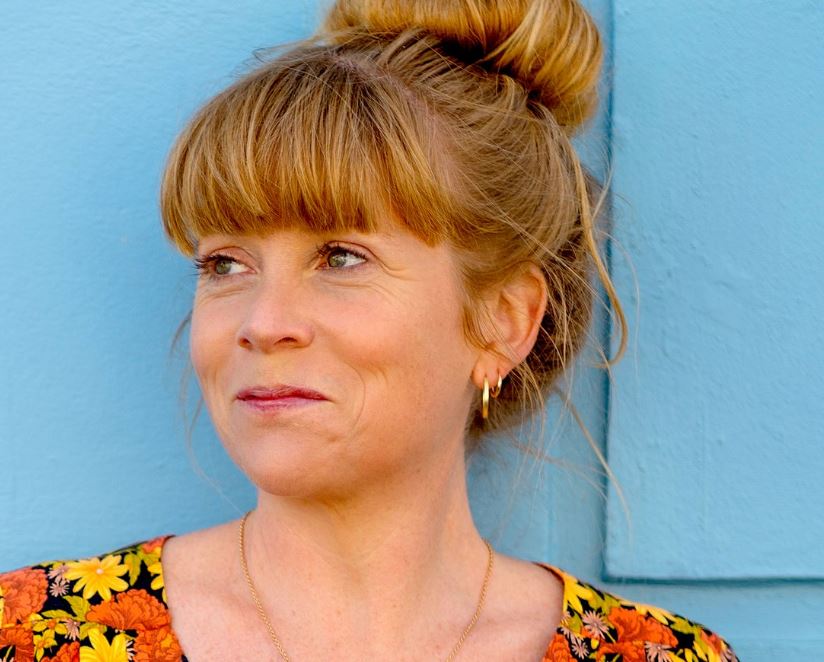
Danish jazz singer SARA OSCHLAG, has made a name for herself as a leader and featured guest in bands throughout the UK and Europe. An intelligent interpreter of songs in the jazz tradition, she has been hailed as a musician’s singer due to her wonderful way of using dynamics, texture and rhythm. Her honest stage presence, expressive voice and effortless sense of swing have made her a firm favorite with musicians and the jazz audience. She released in 2024 her second album YEAH! which features JEROME MOROSS’S hit song LAZY AFTERNOON.”
A unique and individual voice making interesting material effortlessly her own. A singer with a natural musician’s ear and beautiful sense of swing.
–Claire Martin OBE, 5 time winner of the British Jazz Awards for best vocalist
EDIE ADAMS

EDIE ADAMS, iconic American comedian, actress, singer and businesswoman, earned a Tony Award and was nominated for an Emmy Award. Adams was well known for her impersonations of sexy stars on stage and television, especially Marilyn Monroe. She was the frequent television partner of Ernie Kovacs, her husband.
Adams starred on Broadway in Wonderful Town (1953) opposite Rosalind Russell (winning the Theatre World Award), and as Daisy Mae in Li’l Abner (1956), winning the Tony Award for Best Featured Actress in a Musical. She played the Fairy Godmother in Rodgers and Hammerstein’s original Cinderella broadcast in 1957. Adams was to play Daisy Mae in the film version of Li’l Abner but was unable due to the late arrival of her daughter, Mia Susan Kovacs.
CYRILLE AIMÉE

CYRILLE AIMÉE, French jazz singer and winner of the Montreux Jazz Festival Competition in 2007, was a finalist in the Thelonious Monk International Jazz Competition in 2010, and won the coveted Sarah Vaughan International Jazz Vocal Competition in 2012.
Her 2019 album Move On featured cover versions of songs by Stephen Sondheim. The album received praise from Sondheim himself, and one of its songs, Marry Me a Little, was nominated for a Grammy Award.
New York Times music reviewer Stephen Holden described Aimée as a blend of Michael Jackson and Sarah Vaughan and wrote that the “saucy, curly-haired jazz singer [stood] with one foot in tradition and the other in electronics,” and that her voice had a “tart, girlish chirp” and that her Surreal Band fused traditional and futuristic electronics with textures mixing jazz and funk. New York Times reviewer Nate Chinen wrote that she had a “sweet, girlish voice that she controls with a sniper’s precision”.
Aimée was also singled out for particular praise for her role in Alex Webb’s music theatre piece Cafe Society Swing at New York’s 59E59 Theaters in Christmas 2014, where she starred alongside vocalists Charenee Wade and Allan Harris. The show received a Critic’s Pick in the New York Times.
JACKIE ALLEN
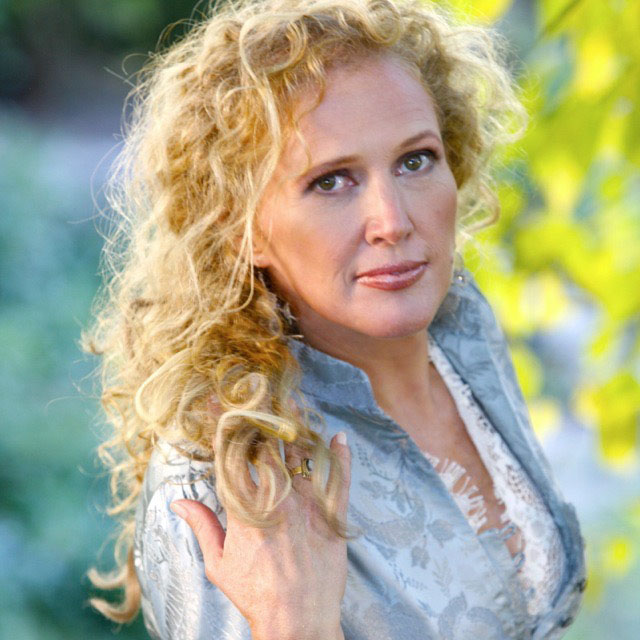
JACKIE ALLEN is an American jazz vocalist. Influenced by jazz, folk, and pop singers, Allen is perhaps best known for interpretations of classic jazz ballads. According to critic Scott Yanow, she brings out “the beauty of the lyrics”. Critic Thom Jurek said, “her gift with more pop-oriented material is utterly distinctive and even innovative, since there isn’t another singer out there who phrases like her”.
Since 2002 Allen has performed and recorded primarily with an ensemble that includes John Moulder (guitar), Dane Richeson(percussion), and Hans Sturm (bass) with the addition of either Ben Lewis, Laurence Hobgood, or Tom Larson (keyboards), Orbert Davis or Tito Carillo (trumpets), and Steve Eisen (woodwinds). She produced The Men in My Life with Eric Hochberg and it was picked up by the Chicago label A440 in 2003. The label signed her to do an additional recording, Love Is Blue, produced by Rob Mathes and released the following year. After the A440 label folded, she signed with Blue Note Records and working with Eric Hochberg once again, released Tangled (2006).
In 2017 she released Rose Fingered Dawn, a set of original songs written for her by Hans Sturm, to critical acclaim. John McDonough wrote in Downbeat Magazine that Jackie “showcases a polished virtuosity…a shimmering paradigm of stylish and sophisticated jazz singing.”
JULIE ANDREWS
Dame JULIE ANDREWS is a world-famous English actress, singer, and author and is one of the most influential artists of the 20th and 21st centuries. She has garnered numerous accolades throughout her career spanning over eight decades, including an Academy Award, a British Academy Film Award, two Emmy Awards, three Grammy Awards, and six Golden Globe Awards as well as nominations for three Tony Awards. One of the biggest box office draws of the 1960s, Andrews has been honored with the Kennedy Center Honors in 2001, the Screen Actors Guild Life Achievement Award in 2007, and the AFI Life Achievement Award in 2022. She was made a Dame (DBE) by Queen Elizabeth II in 2000.
A child actress and singer, Andrews appeared in the West End in 1948 and made her Broadway debut in The Boy Friend (1954). Billed as “Britain’s youngest prima donna”, she rose to prominence in Broadway musicals starring as Eliza Doolittle in My Fair Lady (1956) and Queen Guinevere in Camelot (1960). She also starred in the Rodgers and Hammerstein television musical Cinderella (1957). She made her film debut playing the title role in Walt Disney’s Mary Poppins (1964) and won the Academy Award for Best Actress. The following year, she starred in the musical film The Sound of Music (1965), playing Maria von Trapp and winning the Golden Globe Award for Best Actress – Motion Picture Comedy or Musical.
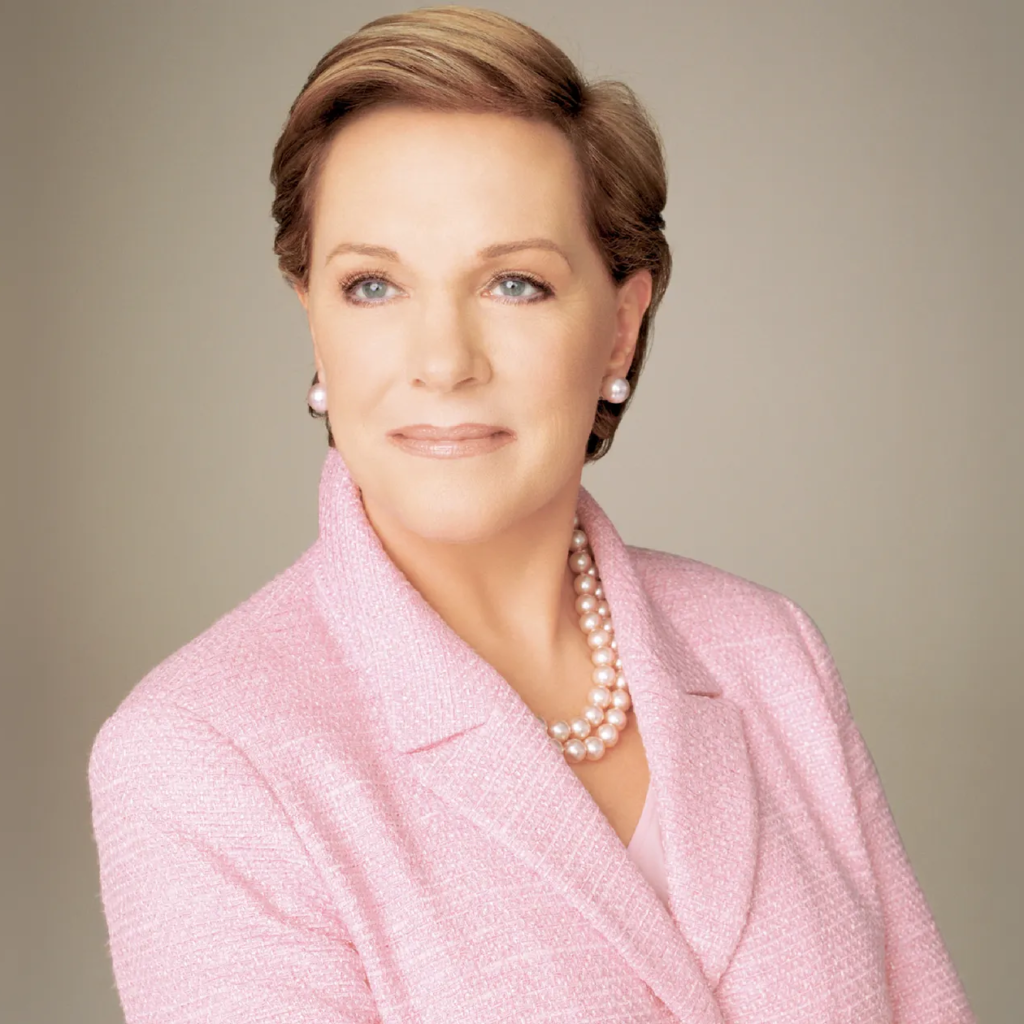
Andrews is also known for her collaborations with Carol Burnett, including television specials in 1962, 1971, and 1989. She starred in her variety special, The Julie Andrews Hour (1973), for which she received the Primetime Emmy Award. Recently she co-created and hosted Julie’s Greenroom (2017), and voiced Lady Whistledown in the Netflix series Bridgerton (2020–present). Andrews has co-authored numerous children’s books with her daughter and two autobiographies, Home: A Memoir of My Early Years (2008) and Home Work: A Memoir of My Hollywood Years (2019). Her achievements far exceed our space available.
HILDE LOUISE ASBJØRNSEN
HILDE LOUISE ASBJØRNSEN is a Norwegian jazz singer, songwriter, cabaret artist and songwriter, known from her own releases and appearances.
After moving to Oslo in 1996 she studied Science Theatre at Theatre science department, University of Oslo (1996–2001), and initiated the duo Asbjørnsen & Joh together with Lene Kongsvik Johansen (Noraprisen, Nye eventyr, I tykt og tynt and Snusk, snadder og gruff). Moreover, she released several albums and toured widely.
Her Hilde Louise Orchestra comprises Jens Fossum (bass), Hermund Nygård (drums), Anders Aarum (piano), Svein Erik Martinsen Ånestad (guitar), as well as Atle Nymo (saxophones) and Kåre Nymark Jr. (trumpet). Before Aarum, Per Husby played piano in the group. She has also been production manager for God kveld, Borge!, Sjel og Showtime and Ett glass til, and established her own production company Sweet Morning Music AS (2008). In 2010 Asbjørnsen contributed to the television series Maestro at NRK 1, and won the Musical Director competition. For her efforts in the production of The Producers at Oslo Nye Teater she was awarded the 2011 Komiprisen in the category best female artist, cabaret and comedy.

Her solo cabaret show The Lulu Show – Life on the Never-Never opened in November 2015 at Oslo Nye Teater and received raving reviews. She was awarded the 2016 Komiprisen in the category Best female comedian on stage. In August 2017 she performed the show at Edinburgh Fringe and was awarded with a 5/5 stars in Broadwaybaby.com.
PATTI AUSTIN
PATTI AUSTIN is an American Grammy Award-winning R&B, pop, and jazz singer and songwriter best known for Baby, Come to Me, her 1982 duet with James Ingram, which topped the Billboard Hot 100 after its re-release that same year.
After singing on Quincy Jones’s album The Dude, she signed a contract with his record label, Qwest. Her duet with James Ingram became a No. 1 hit on the Billboard magazine pop chart. A second duet with Ingram, How Do You Keep the Music Playing, appeared on soundtrack to the film Best Friends (1982). Her final album for Qwest, The Real Me contained versions of jazz standards. Austin moved on to GRP for four releases, including Love Is Gonna Getcha, which contained the singles Good in Love and Through the Test of Time.
During a 2007 interview, Austin spoke of reluctantly attending as a teenager one of Judy Garland’s last concerts and how the experience helped focus her career. “She ripped my heart out. I wanted to interpret a lyric like that, to present who I was at the moment through the lyric.”
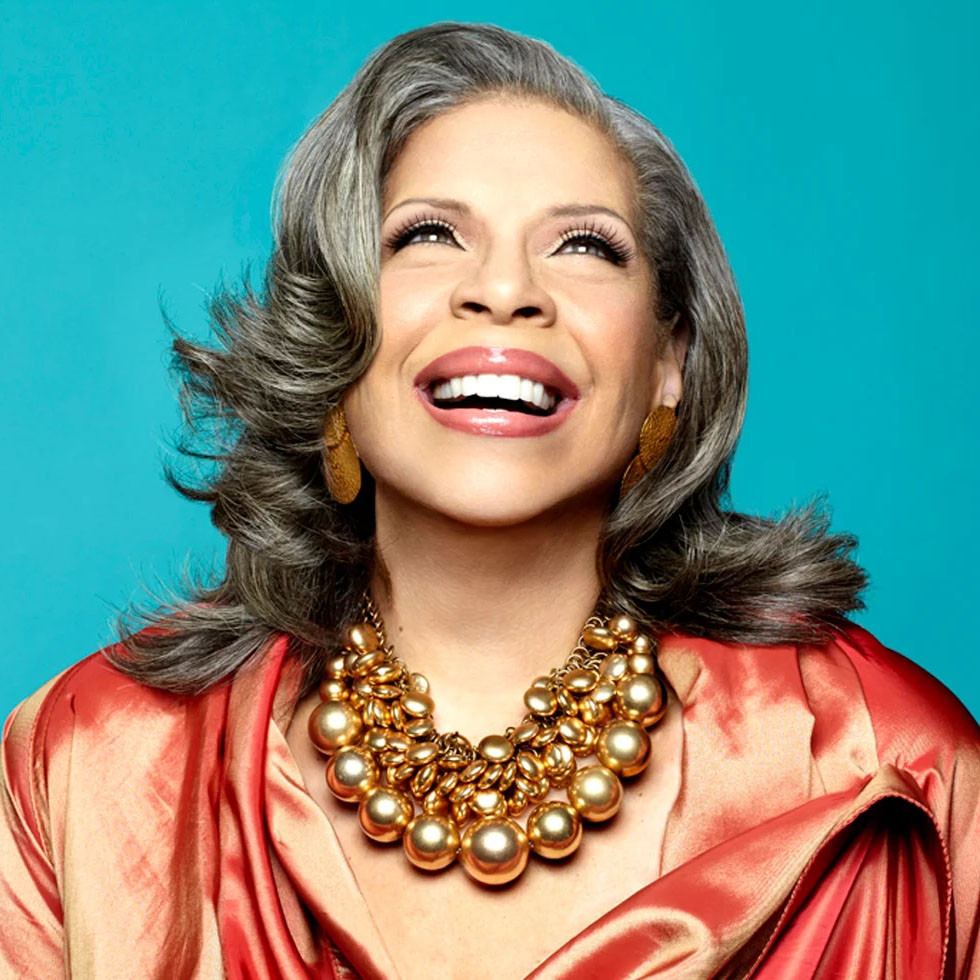
In 2015, Austin appeared on Patrick Williams’ Home Suite Home large jazz ensemble album, as vocalist for Williams’ composition 52nd & Broadway, which won a Grammy for Best Arrangement, Instruments and Vocals.
KAYE BALLARD
KAYE BALLARD was an American actress, comedian, and singer and was the first artist to sing Lazy Afternoon in her starring role as Helen in the Moross/Latouche musical The Golden Apple. Ballard established herself as a musical comedian in the 1940s, joining the Spike Jones touring revue of entertainers. Capable of playing broad physical comedy as well as stand-up dialogue routines, she became familiar in television and stage productions. Ballard made her television debut on Henry Morgan’s Great Talent Hunt, a short-lived program hosted by Henry Morgan which first aired January 26, 1951. In 1954, she was the first person to record the song Fly Me to the Moon.
In 1954, Ballard starred on Broadway as Helen in The Golden Apple introducing the song Lazy Afternoon. She portrayed Ruth in Joseph Papp’s The Pirates of Penzance, Rosalie in Carnival! and the title role in Molly, an unsuccessful musical adaptation of the popular radio serial The Goldbergs. She created the role of the Countess and closed out-of-town in Marc Blitzstein’s Reuben, Reuben, and played Ruth Sherwood in Wonderful Town at New York City Center in 1963.
In December 2010, she, Donna McKechnie and Liliane Montevecchi starred in a production of From Broadway with Love, staged at the Lensic Theater in Santa Fe, New Mexico.[ Ballard was in the 2012 cabaret show Doin’ It for Love, which premiered in Austin, Texas at the Paramount Theatre. Starring Ballard and Montevecchi, the cast included Broadway dancer Lee Roy Reams.
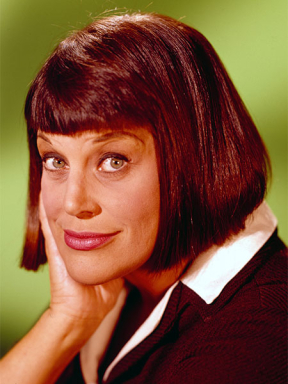
(The Austin performance benefited the Texas Humane Legislation Network.) The show then went on to play in Los Angeles on March 8 and 10, 2012. Ballard announced her official retirement in 2015 at the age of 89. Ballard died at her home in Rancho Mirage, California, on January 21, 2019, at the age of 93.
CLAIRE MARTIN
CLAIRE MARTIN is an English jazz singer. Her professional career began at the age of 19 when she sang in a hotel band in at the Savoy Hotel after auditioning to be a bluecoat Bournemouth. When she was 21, she formed her own jazz quartet. In 1991, she was signed by the Scottish jazz label Linn Records and her debut album, The Waiting Game, was released in 1992. Later that year, she performed as the opening act for Tony Bennett at the Glasgow International Jazz Festival.
Martin has performed all over Europe and Asia with her trio and, until his death in 2012, with Richard Rodney Bennett in an intimate cabaret duo setting in England and in America. They played to sell-out crowds at venues including the Algonquin Hotel in New York City. She has been a featured soloist with the Halle Orchestra, the Royal Liverpool Philharmonic, the RTÉ Concert Orchestra, the BBC Big Band, and the BBC Concert Orchestra. She has co-presented BBC Radio 3’s Jazz Line Up since 2000 and has interviewed many of her musical heroes, such as Pat Metheny, Michael Brecker, Brad Mehldau, and André Previn. She has collaborated with Martin Taylor, John Martyn, Stéphane Grappelli, Kenny Barron, Richard Rodney Bennett, Jim Mullen and Nigel Hitchcock. Claire also regularly appears with multi-award winning singer/pianist Ian Shaw and they are currently collaborating on a new duo show for 2025.
Claire has toured extensively throughout the UK, Scandinavia, Russia, and China, appearing with the Royal Liverpool Philharmonic and her trio. In 2011, she made her debut at Lincoln Center in New York City with pianist Bill Charlap and performed at the Algonquin Hotel for a three-week residency with Rodney Bennett.

Martin recorded with jazz pianist Kenny Barron on Too Much in Love to Care (Linn, 2011). In 2013, she toured with her show, The Two of U, and worked with conductor John Wilson, Joe Stilgoe, Mark McGann, and the Royal Liverpool Philharmonic, celebrating the music of Paul McCartney and John Lennon.
In August 2020 Martin also sang several songs in the BBC Radio 2 show, Sunday Night is Music Night (Sinatraland) which was dedicated to the music of Frank Sinatra.
JOE BECK
JOE BECK was an American jazz guitarist who was active for over 40 years. Born in Philadelphia, Beck moved to Manhattan in his teens, playing six nights a week in a trio setting, which gave him an opportunity to meet various people working in the thriving New York music scene. By the time he was 18, Stan Getz hired him to record jingles, and in 1967 he recorded with Miles Davis. By 1968, at age 22, he was a member of the Gil Evans Orchestra. Beck described his early success in an interview near the end of his life:
My career happened because I happened to be in the right place at the right time in a very unique time of jazz music. …when I would finish a gig around two in the morning I would go around the corner to the Playboy Club and sit in with Monty Alexander and let Les Spann take a breather and I would finish the gig for him. Then we would go and listen to Kenny Burrell play around the corner or we would go up to Mintons and listen to Wes Montgomery and sit in with him …
Beck played in a variety of jazz styles, including jazz fusion, post bop, mainstream jazz, and soul jazz, but also respected rock stylists and cross-over players (he was good friends with Larry Coryell) and briefly flirted with rock music styles himself in the late 1960s and early 1970s.
Beck worked as a sideman or session guitarist with a wide variety of well-known jazz, rock, and fusion musicians, including Louis Armstrong, Duke Ellington, Buddy Rich, Woody Herman, Miles Davis, Maynard Ferguson, Howard Roberts, Tommy Tedesco, Larry Coryell, John Abercrombie, Tom Scott, Jeremy Steig, and Gábor Szabó.
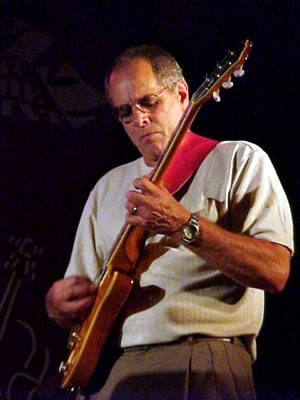
In mid-life Beck spent less time playing and worked more as a composer of commercial jingles and as an arranger, writing arrangements for Frank Sinatra and Gloria Gaynor. Joe also arranged and produced many records including projects for Frank Sinatra, Gloria Gaynor, and two albums for Esther Phillips including her hit single, What A Difference A Day Makes. Over the years, Joe was signed to contracts with Columbia, Polydor, Verve, Gryphon, CTI, and MGM Records.
REGINA BELLE
REGINA BELLE is an American singer-songwriter who started her career in the mid-1980s. Known for her singles Baby Come to Me (1989) and Make It Like It Was (1990), Belle is most notable for three hit duets, all with Peabo Bryson: “, the love theme from the comedy film Leonard Part 6, recorded in 1987; A Whole New World, the main theme of the Disney’s animated feature film Aladdin recorded in 1992, with which Belle and Bryson won a Grammy Award; and I Just Can’t Imagine. The theme song Far Longer than Forever from the animated movie The Swan Princess, performed with Jeffrey Osborne, was nominated for a Golden Globe in 1995 for Best Original Song.
In 1987, she released her debut album, All by Myself. It includes her first hits So Many Tears and Show Me the Way. The same year, Belle recorded her first successful duet with Peabo Bryson: the song Without You, the love theme from the comedy film Leonard Part 6, also released in 1987. The song was her first single to appear on the Adult Contemporary chart, peaking at #8 and was also her first single to appear in four charts, including the UK Singles, peaking at #85, her best position in this chart until 1989. Her follow-up album, Stay with Me, released in 1989. Belle recorded a duet in 1991 with Johnny Mathis, Better Together, which appeared on his album Better Together: The Duet Album.
In 2001, her cover of Just the Two of Us from the tribute album To Grover, With Love made a surprising return to the Billboard charts. Within months Belle would sign with the jazz-oriented independent label Peak-Concord Jazz.
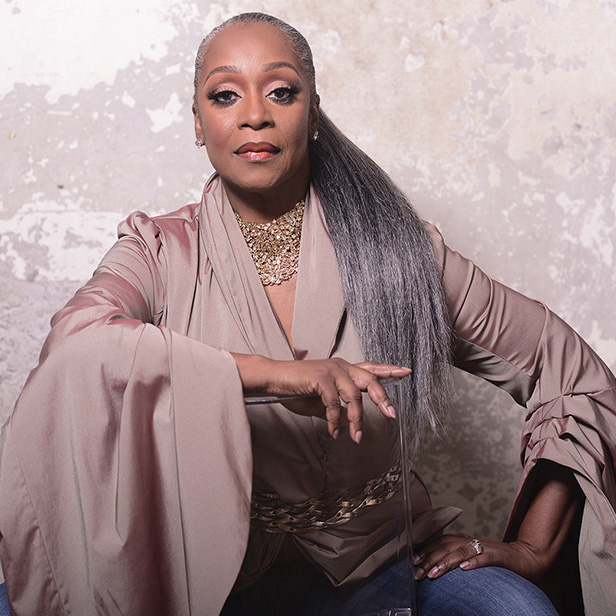
She released the album This Is Regina!. In 2004, she released a jazz standard album, Lazy Afternoon, produced by George Duke. The album featured the JEROME MOROSS hit song of the same name.
RICHARD RODNEY BENNETT
Sir RICHARD RODNEY BENNETT was an English composer of film, TV and concert music, and also a jazz pianist and occasional vocalist. He was based in New York City from 1979 until his death there in 2012.
Bennett produced over 200 works for the concert hall, and 50 scores for film and television. He was also a writer and performer of jazz songs for 50 years. Immersed in the techniques of the European avant-garde via his contact with Boulez, Bennett subsequently developed his own dramato-abstract style. In his later years, he adopted an increasingly tonal idiom.
Bennett regularly performed as a jazz pianist, with such singers as Cleo Laine, Marion Montgomery (until her death in 2002), Mary Cleere Haran (until her death in 2011), and more recently with Claire Martin, performing the Great American Songbook. Bennett and Martin performed at such venues as The Oak Room at the Algonquin Hotel in New York, and The Pheasantry and Ronnie Scott’s Jazz Club in London.
He wrote music for films and television; among his scores were the Doctor Who story, The Aztecs (1964) for television, and the feature films Billion Dollar Brain (1967), Lady Caroline Lamb (1972) and Equus (1977). His scores for Far from the Madding Crowd (1967), Nicholas and Alexandra (1971), and Murder on the Orient Express (1974), each earned him Academy Award nominations, with Murder on the Orient Express gaining a BAFTA award.
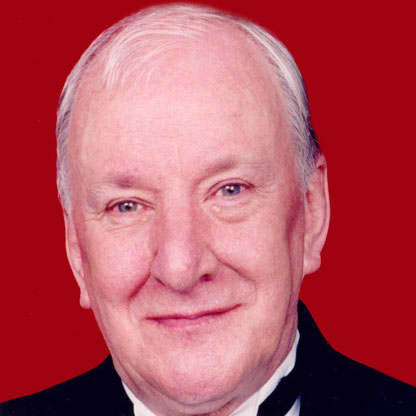
Later works include Enchanted April (1992), Four Weddings and a Funeral (1994), The Tale of Sweeney Todd (1999) and Gormenghast (2000). He was also a prolific composer of orchestral works, piano solos, choral works and operas. Despite this eclecticism, Bennett’s music rarely involved stylistic crossover.
TONY BENNETT
TONY BENNETT, born Anthony Dominick Benedetto, was an American jazz and traditional pop singer. He received many accolades, including 20 Grammy Awards, a Lifetime Achievement Award, and two Primetime Emmy Awards. Bennett was named a National Endowments for the Arts Jazz Master and a Kennedy Center Honoree. He founded the Frank Sinatra School of the Arts in Astoria, Queens, New York, along with Exploring the Arts, a non-profit arts education program. He sold more than 50 million records worldwide and earned a star on the Hollywood Walk of Fame.
Bennett throughout his career created popular and critically praised work into the 21st century. Among his greatest hits are I Left My Heart in San Francisco , Because of You, Rags to Riches, Fly Me to the Moon and The Best is Yet to Come. He attracted renewed acclaim late in his career for his collaboration with Lady Gaga, which began with the album Cheek to Cheek (2014); the two performers toured together to promote the album throughout 2014 and 2015. With the release of the duo’s second album, Love for Sale (2021), Bennett broke the individual record for the longest run of a top-10 album on the Billboard 200 chart for any living artist; his first top-10 record was I Left My Heart in San Francisco in 1962. Bennett also broke the Guinness World Record for the oldest person to release an album of new material, at the age of 95 years and 60 days.
Bennett’s final album, Love for Sale, was released on September 30, 2021.

The record received generally favorable reviews, and debuted at number eight in the United States. Alexis Petridis called Bennett’s performance on the album “pretty remarkable” despite the singer’s age and health condition in his review for The Guardian. Bennett broke the individual record for the longest span of top-10 albums on the Billboard 200 chart for any living artist.
POLLY BERGEN
POLLY BERGEN was an American actress, singer, television host, writer and entrepreneur.
She won an Emmy Award in 1958 for her performance as Helen Morgan in Helen Morgan (Playhouse 90). For her stage work, she was nominated for the Tony Award for Best Featured Actress in a Musical for her performance as Carlotta Campion in Follies in 2001. Her film work included Cape Fear (1962) and The Caretakers (1963), for which she was nominated for the Golden Globe Award for Best Actress in a Motion Picture – Drama. She hosted her own weekly variety show for one season (The Polly Bergen Show), was a regular panelist on the TV game show To Tell the Truth, and later in life had roles in The Sopranos and Desperate Housewives.
Polly Bergen had a successful singing career alongside her acting career. She was signed to Columbia
Polly Bergen had a successful singing career alongside her acting career.
Bergen starred in a 2001 Broadway revival of Stephen Sondheim’s Follies at the Belasco Theater and received a Tony Award nomination as Best Featured Actress in a Musical. In 2003, she starred at the same theatre in Six Dance Lessons in Six Weeks opposite Mark Hamill in a role she took over from Rue McClanahan.
She was signed to Columbia Records and released several albums, including Bergen Sings Morgan in 1957, which featured songs from the musical Show Boat and peaked at number 10 on the Billboard 200.
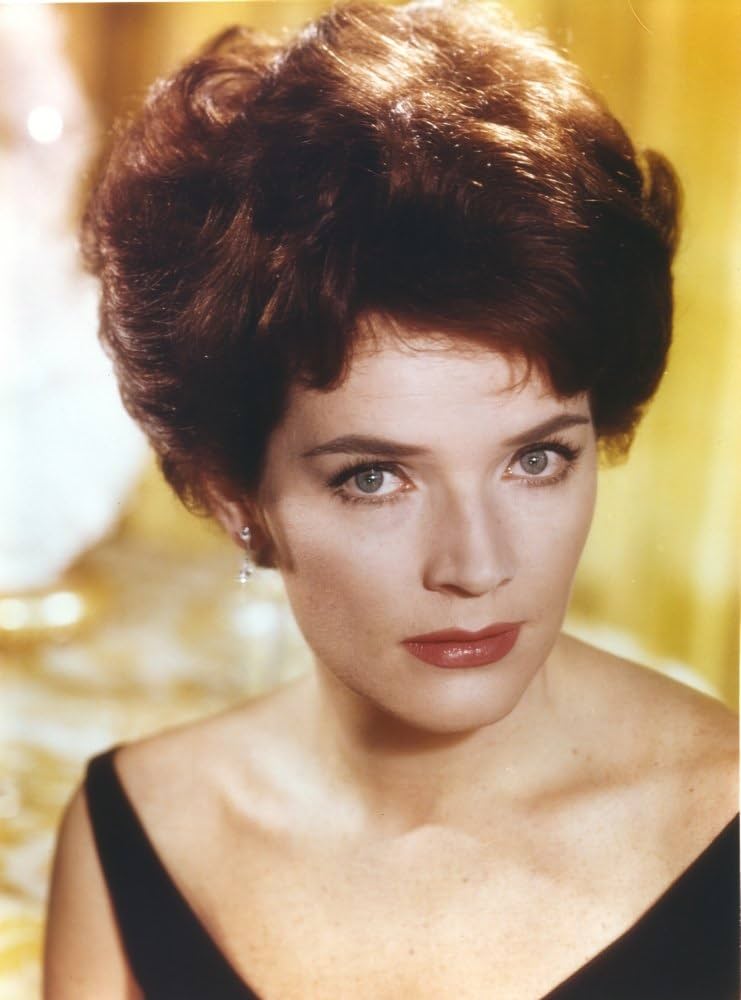
She also recorded a duet album with her father, titled Polly and Her Pop.
Bergen was known for her performances on television shows like The Ed Sullivan Show and The Dean Martin Show. She sang popular songs such as I’ve Got My Love to Keep Me Warm and What the World Needs Now Is Love.
WILLIAM BOLCOM
WILLIAM BOLCOM is a distinguished American composer and pianist, born on May 26, 1938, in Seattle, Washington. His career spans over six decades, during which he has made significant contributions to both classical and popular music genres. Bolcom’s work is characterized by its eclectic style, blending elements of ragtime, cabaret, and classical music.
Bolcom began his musical education at a young age, studying composition privately with George Frederick McKay and John Verrall at the University of Washington. He later studied with renowned composers Darius Milhaud at Mills College and Olivier Messiaen at the Paris Conservatoire. Bolcom earned his Master of Arts degree and Doctor of Musical Arts degree from Stanford University.
Throughout his career, Bolcom has received numerous accolades, including the Pulitzer Prize for Music in 1988 for his 12 New Études for Piano. He has also been honored with a National Medal of Arts, a Grammy Award, and the Detroit Music Award. In 2007, he was named Composer of the Year by Musical America.
Bolcom’s compositions are diverse, ranging from solo piano works to large-scale operas. Some of his notable works include Songs of Innocence and Experience, a setting of William Blake’s poetry for soloists, chorus, and orchestra, and McTeague, an opera based on Frank Norris’s novel. He has also composed several cabaret songs and popular songs in collaboration with his wife, mezzo-soprano Joan Morris.
As a pianist, Bolcom has performed and recorded extensively, often collaborating with Joan Morris. Their recordings include a collection of popular songs from the late 19th and early 20th centuries, as well as Bolcom’s own compositions. Bolcom’s interest in ragtime music is evident in works such as Graceful Ghost Rag, written in memory of his father.
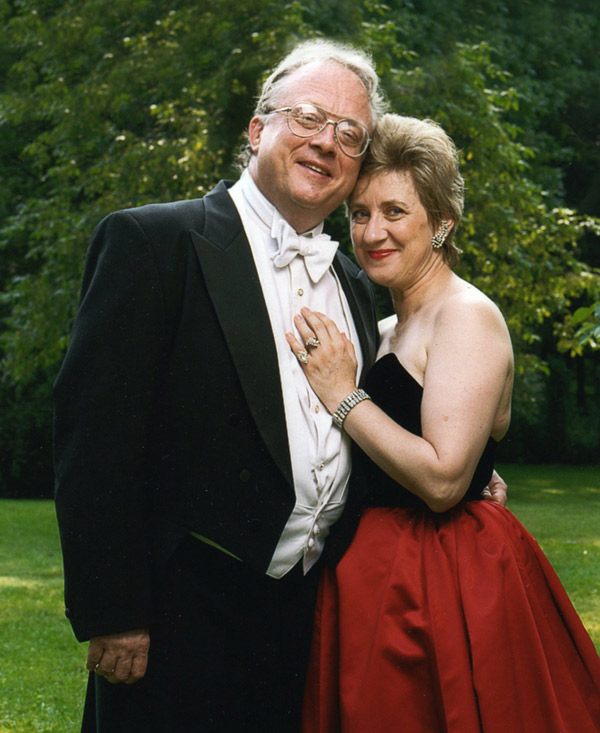
Bolcom’s teaching career has also been notable. He joined the faculty of the University of Michigan’s School of Music in 1973 and was named the Ross Lee Finney Distinguished University Professor of Composition in 1994. He retired in 2008 but continues to be an influential figure in the world of music.
In recent years, Bolcom has continued to compose and perform, with new works being premiered and recorded. His recent compositions include Suite of Preludes, performed by pianist Jenny Lin, and Dedication, premiered by the ROCO Chamber Orchestra.
BETTY BUCKLEY
BETTY BUCKLEY is an American actress and singer. Buckley is the winner of a Tony Award, and was nominated for an additional Tony Award, two Daytime Emmy Awards, two Grammy Awards, and an Olivier Award. In 2012, she was inducted into the American Theater Hall of Fame.
Buckley won the 1983 Tony Award for Best Featured Actress in a Musical for her role as Grizabella in the original Broadway production of Cats. She went on to play Norma Desmond in Sunset Boulevard (1994–96) in both London and New York, receiving a 1995 Olivier Award nomination for Best Actress in a Musical, and was nominated for the 1997 Tony Award for Best Actress in a Musical for Triumph of Love. Her other Broadway credits include 1776 (1969), Pippin (1973), and The Mystery of Edwin Drood (1985). From September 2018 to August 2019, she starred as the title role in the U.S. national tour of Hello, Dolly.
Buckley starred in the TV series Eight Is Enough from 1977 to 1981 and played gym teacher Miss Collins in the 1976 film Carrie, before going on to star in the short-lived Broadway musical version of Carrie in 1988, playing Carrie White’s mother, Margaret. Her other film roles include Dixie Scott in Tender Mercies (1983), Sondra Walker in Frantic (1988), Kathy in Another Woman (1988) and Mrs. Jones in The Happening (2008).
Buckley made her Broadway debut in 1969 in the original production of the musical 1776; she has been called “The Voice of Broadway” by New York magazine.
In 2002, Buckley was nominated for a Grammy Award in the Best Traditional Pop Vocal Album Category, for her album Stars and the Moon: Live at the Donmar, which was recorded at the Donmar Warehouse Theatre in London.
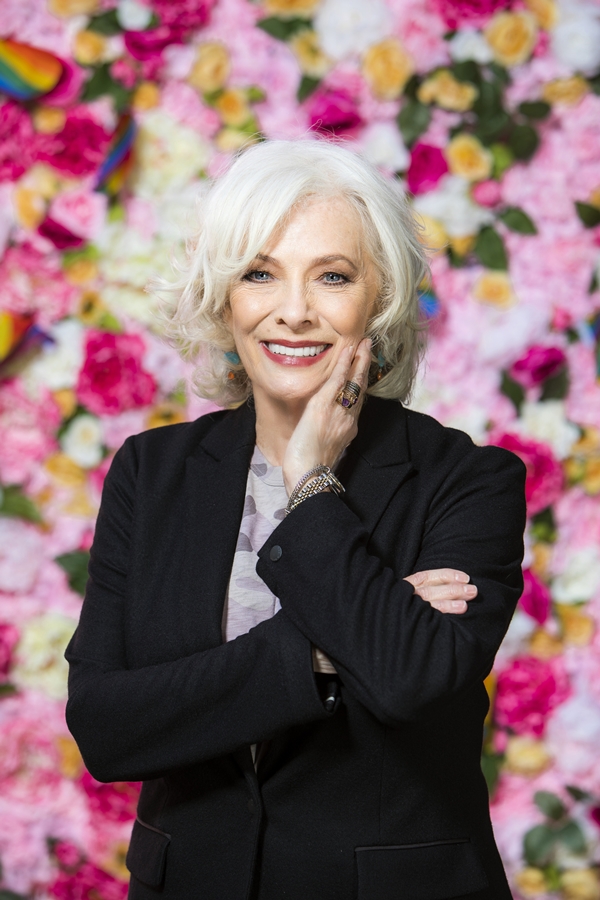
This was her second Grammy nomination; she had previously been nominated in 2000, in the Best Spoken Word Album category for The Diaries of Adam and Eve.
Her album Bootleg: Boardmixes From the Road was released in 2010, and her recording of her hit show at Feinstein’s at the Regency with pianist/collaborator Christian Jacob, entitled Ah, Men: The Boys of Broadway debuted on 28 August 2012.
Her album Ghostlight was produced by the T Bone Burnett and was released on September 16, 2014.
DONALD BYRD
DONALD BYRD was an influential jazz trumpeter and bandleader known for his versatility and ability to blend genres. Born on December 9, 1932, in Detroit, Michigan, Byrd began his career in the 1950s and quickly became a sought-after sideman for many prominent jazz musicians. He played with Art Blakey’s Jazz Messengers, replacing Clifford Brown, and collaborated with John Coltrane, Sonny Rollins, and Thelonious Monk.
Byrd’s first regular group was a quintet co-led with baritone saxophonist Pepper Adams from 1958 to 1961. He recorded several albums for Blue Note Records, including Free Form (1961) and A New Perspective” (1963), which combined jazz with gospel influences.
In the 1970s, Byrd transitioned to soul and funk, producing commercially successful albums like Black Byrd (1973) and Street Lady (1973), which reached a broader audience. His work with the Mizell Brothers helped him achieve mainstream success while maintaining his jazz roots.
Byrd was also an educator, nurturing young musicians and encouraging their development. He passed away on February 4, 2013, leaving behind a legacy that bridged genres and generations.
ANN HAMPTON CALLAWAY
ANN HAMPTON CALLAWAY is a talented American jazz singer, songwriter, and actress. She comes from a musical family; her father was a journalist and her mother was a singer, pianist, and vocal coach. Her sister, Liz Callaway, is also a singer and actress on Broadway.
Callaway learned scat singing from her father and developed a love for jazz from his record collection. She studied acting for two years at the University of Illinois at Urbana-Champaign before moving to New York City in 19791. During the 1980s, she worked as a cabaret singer, performing jazz, traditional pop, and standards from the Great American Songbook.
She is best known for writing and singing the theme song for the TV series The Nanny and for her Tony-nominated performance in the Broadway musical Swing!.
In addition to the theme for 0, she wrote theme songs for Day’s End, Cabaret Beat, and The Jim J and Tammy Fay Show and composed incidental music for the play, Baltimore Star by David Weiner. Her song Manhattan in December was included in the 2005 off-Broadway musical revue A Broadway Diva Christmas.
She composed At the Same Time for Barbra Streisand. The song appeared on Streisand’s album, Higher Ground, which debuted at the top of the Billboard 200 and gave Callaway her first platinum record. Streisand asked her to write lyrics to a Rolf Lovland melody which she entitled I’ve Dreamed of You which Streisand sang to James Brolin at their wedding.
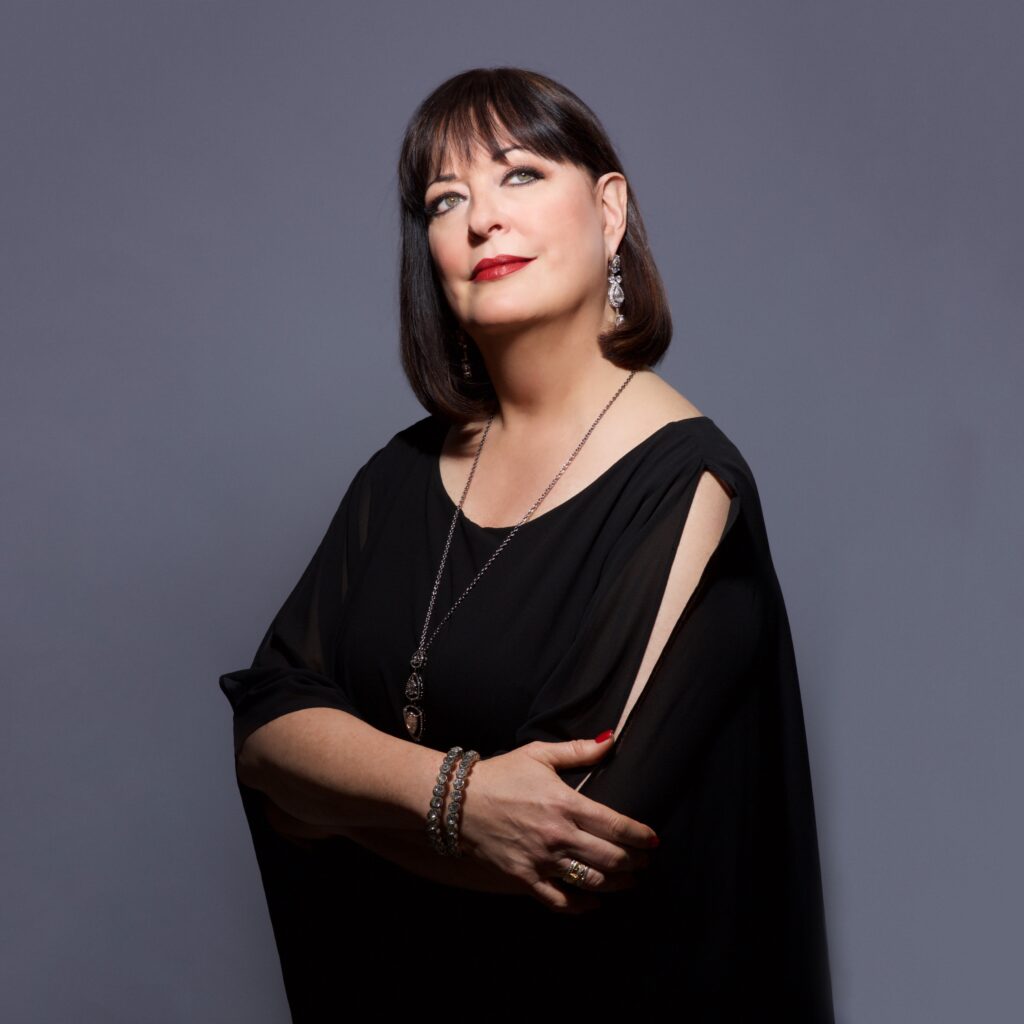
The song was later recorded on her album, A Love Like Ours, released as a single, and selected for the album, The Essential Barbra Streisand. Streisand performed both songs on her live double album, Timeless. She chose Callaway’s song A Christmas Lullaby for her album Christmas Memories.Throughout her career, Callaway has performed with many top orchestras and big bands, including Wynton Marsalis and the Lincoln Center Jazz Orchestra. She continues to tour and perform, showcasing her warm, spontaneous wit and passionate delivery of standards, jazz classics, and originals.
BENNY CARTER
BENNY CARTER was a legendary jazz musician, composer, arranger, and bandleader born on August 8, 1907, in New York City. He was a pioneer on the alto saxophone and also played the trumpet and clarinet. Carter’s career spanned over seven decades, from the 1920s to the 1990s.
Carter began his career in the 1920s, performing with various bands and quickly establishing himself as a talented arranger. He worked with notable bands such as Charlie Johnson’s Orchestra and Fletcher Henderson’s big band, where his innovative arrangements helped shape the swing style. In the early 1930s, he formed his own band, which included future jazz stars like Chu Berry and Teddy Wilson.
Throughout his career, Carter recorded extensively and composed many influential jazz pieces, including Honeysuckle Rose and When Lights Are Low. He also contributed to film and television scores, showcasing his versatility as a composer.
Carter was honored with numerous awards, including Grammy Awards and the National Medal of Arts. He continued to perform and record well into his 90s, leaving behind a legacy that has had a lasting impact on jazz music.
VIC DAMONE
VIC DAMONE, born Vito Rocco Farinola on June 12, 1928, in Brooklyn, New York, was a renowned American traditional pop and big band singer. His career spanned over five decades, during which he recorded over 2,000 songs and became a beloved figure in the music industry.
Damone’s early life was marked by hardship. His father, an electrician, was injured at work, forcing young Vic to drop out of Lafayette High School to support his family. He worked as an usher at the Paramount Theater in Manhattan, where he met Perry Como, who encouraged him to pursue a singing career. Damone adopted his mother’s maiden name, Damone, as his stage name at the suggestion of comedian Morey Amsterdam.
In 1947, Damone won first prize on Arthur Godfrey’s Talent Scouts, which launched his career. He signed with Mercury Records and released his first hit, I Have But One Heart, which reached number seven on the Billboard chart. This success led to a weekly radio show, Saturday Night Serenade, and numerous television appearances on shows like The Ed Sullivan Show and The Perry Como Show.
Damone’s career continued to flourish in the 1950s and 1960s, with hits like You’re Breaking My Heart and On the Street Where You Live from My Fair Lady. He also appeared in several films and television shows, including a cameo in the 1997 comedy Money Talks.
Throughout his life, Damone was married four times, including to actress Pier Angeli and singer Diahann Carroll. He had seven children and remained active in the music industry until his death on February 11, 2018, at the age of 89.
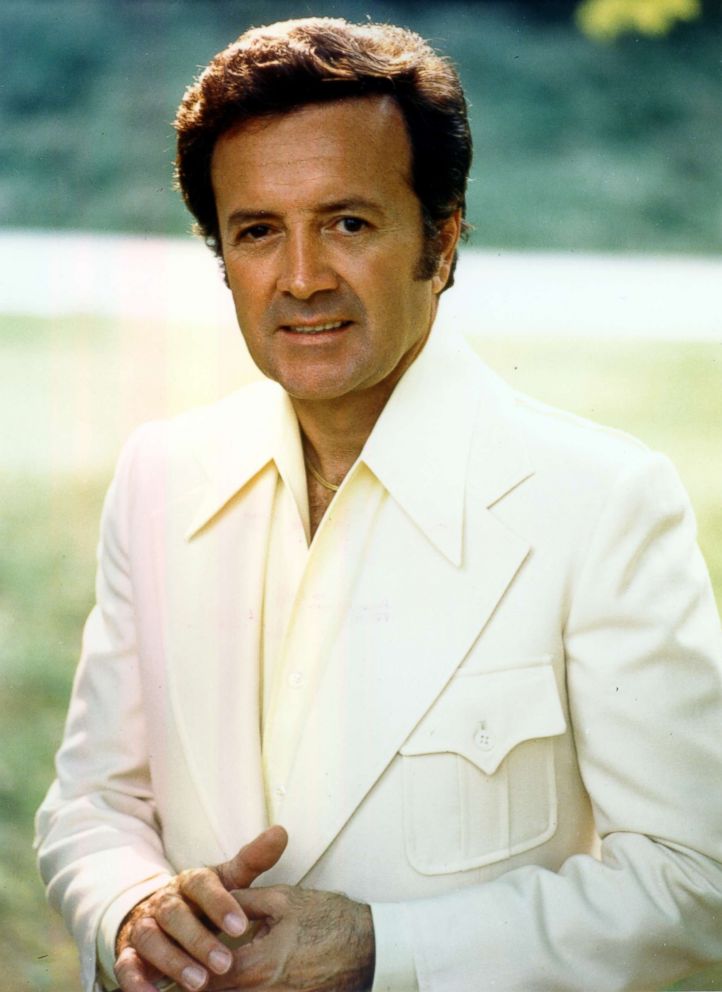
Damone’s legacy is one of timeless music and enduring charm. He was inducted into the Songwriters Hall of Fame in 1997, a testament to his impact on the music world. His smooth voice and romantic style continue to be celebrated by fans and musicians alike.
MARLENE DIETRICH
MARLENE DIETRICH, born Marie Magdalene Dietrich on December 27, 1901, in Berlin, Germany, was a legendary actress and singer whose career spanned nearly seven decades. Her life was marked by remarkable achievements, personal challenges, and a lasting legacy in the entertainment industry.
Dietrich’s early life was shaped by her father, Ludwig Dietrich, a Royal Prussian police officer, and her mother, Wilhelmina, who remarried after Ludwig’s death. Marlene grew up in Berlin and showed an early interest in the arts, studying violin and aspiring to be a concert musician. However, the vibrant nightlife of Weimar Berlin drew her to the stage, and she began performing in cabarets and silent films.
Her breakthrough came in 1930 with the film The Blue Angel, directed by Josef von Sternberg. Her portrayal of the sultry cabaret singer Lola Lola brought her international acclaim and a contract with Paramount Pictures. She went on to star in several Hollywood classics, including Morocco (1930), Shanghai Express (1932), and The Devil Is a Woman (1935). Her glamorous persona and exotic looks made her one of the highest-paid actresses of her time.
During World War II, Dietrich became a high-profile entertainer for the Allied forces, performing for troops and raising funds for war relief. She renounced Nazism and was branded a traitor in Germany, but her humanitarian efforts earned her honors from the United States, France, Belgium, and Israel. Despite her success in Hollywood, Dietrich spent much of the 1950s to the 1970s touring the world as a live-show performer, captivating audiences with her singing and acting.
In her later years, Dietrich faced personal challenges, including struggles with alcohol and health issues. She retired from public life in the late 1970s and spent her final years in seclusion in Paris, where she passed away on May 6, 1992, at the age of 90.
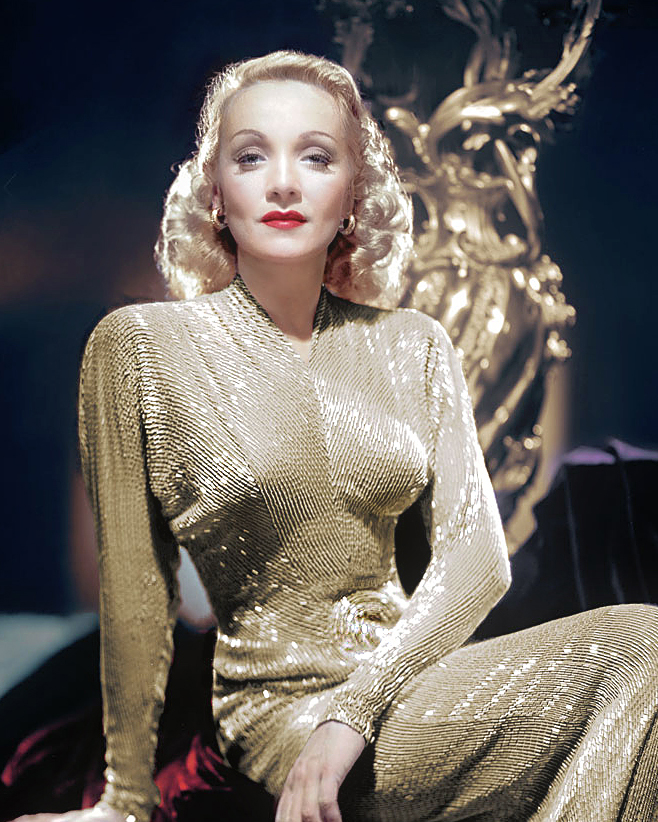
Despite her withdrawal from the public eye, she maintained active correspondence with friends and associates until her death.
Marlene Dietrich’s legacy endures through her contributions to film, music, and humanitarian efforts. In 1999, the American Film Institute named her the ninth greatest female screen legend of classic Hollywood cinema. Her life story continues to inspire and captivate audiences, cementing her status as an icon of the entertainment industry.
MARIA EWING
MARIA EWING was a celebrated American opera singer renowned for her exceptional vocal talent and dramatic intensity. Born on March 27, 1950, in Detroit, Michigan, she was the youngest of four daughters in a culturally rich household. Her mother, Hermina, was Dutch-born, and her father, Norman, was an electrical engineer with claimed Sioux heritage. This diverse background played a role in shaping Ewing’s unique identity and artistry.
Ewing’s musical journey began with piano lessons at the age of thirteen, and she soon discovered her passion for singing. Encouraged by her mother, she pursued vocal training and excelled in various singing competitions during her youth. Her talent was evident early on, and she quickly made a name for herself in the world of opera.
In 1973, Ewing made her professional debut at the Ravinia Festival in Illinois, performing under the direction of conductor James Levine. This marked the beginning of her illustrious career. Three years later, Levine cast her as Cherubino in Mozart’s The Marriage of Figaro at the Metropolitan Opera, a role that established her as a rising star in the opera world. Ewing’s performances at the Met spanned several years, with a total of 96 appearances that solidified her reputation as one of the most compelling opera singers of her time.
Ewing’s repertoire was diverse, encompassing both soprano and mezzo-soprano roles. Some of her most iconic performances included roles such as Blanche in Poulenc’s Dialogues of the Carmelites, Carmen in Bizet’s Carmen, Dorabella in Mozart’s Così fan tutte, Rosina in Rossini’s The Barber of Seville, and the title role in Strauss’s Salome. Her ability to convey deep emotion and bring characters to life on stage made her performances unforgettable.

Ewing’s career took her to major opera houses around the world, including the Lyric Opera of Chicago, where she delivered memorable performances in various roles. Her portrayal of Rosina and the title role in Susannah were particularly acclaimed, showcasing her versatility and vocal prowess.
Ewing’s career was not without its challenges. She grappled with the complexities of her biracial heritage, which inspired her daughter Rebecca’s directorial debut film, Passing. Ewing’s pride in her African roots and her unembarrassed attitude towards her racial makeup were notable aspects of her personal life, reflecting her strong sense of identity.
Maria Ewing passed away on January 9, 2022, at the age of 71. Her legacy as an extraordinary opera singer and a trailblazer in the arts continues to be celebrated by fans and critics alike. Ewing’s contributions to the world of opera remain influential, and her powerful performances are remembered for their emotional depth and artistic brilliance.
MAYNARD FERGUSON
MAYNARD FERGUSON was a towering figure in the world of jazz music, renowned for his extraordinary trumpet playing and charismatic stage presence. Born on May 4, 1928, in Verdun, Quebec, Ferguson’s journey into music began at an early age. He was a child prodigy, and by the age of nine, he was already playing with the Canadian Broadcasting Corporation Orchestra.
Ferguson gained prominence in the 1940s and 1950s as a member of some of the most influential big bands of the era. His high-note trumpet playing was nothing short of legendary, setting new standards for brass musicians. He played with the orchestras of Stan Kenton and Jimmy Dorsey, among others, where his powerful and distinctive sound caught the attention of jazz enthusiasts and critics alike.
In the 1950s, Maynard Ferguson formed his own big band, which quickly became one of the most exciting and innovative groups in jazz. His band was known for its tight arrangements, dynamic performances, and Ferguson’s stunning trumpet solos. One of his most famous recordings from this period is Maynard Ferguson and His Orchestra at the Opera House, which showcased his exceptional talents and the band’s remarkable energy.
Ferguson’s popularity soared in the 1960s and 1970s when he embraced the fusion of jazz with rock and pop music. He scored a major hit with his version of the theme from the television show Rocky, which became a crossover sensation. This period also saw the release of several critically acclaimed albums, such as Chameleon and Conquistador, which solidified his reputation as a jazz innovator who could appeal to a wide audience.
Throughout his career, Ferguson was a relentless educator and mentor. He conducted numerous clinics and workshops, inspiring countless young musicians to pursue their passion for jazz. His dedication to nurturing talent and his willingness to share his knowledge and experiences made him a beloved figure in the music community.
Maynard Ferguson’s influence extended far beyond his remarkable trumpet playing. He was a charismatic performer, known for his showmanship and ability to connect with audiences. His live performances were electrifying, leaving a lasting impression on all who witnessed them. He was also a prolific recording artist, with a discography that spans several decades and includes a wide range of musical styles.
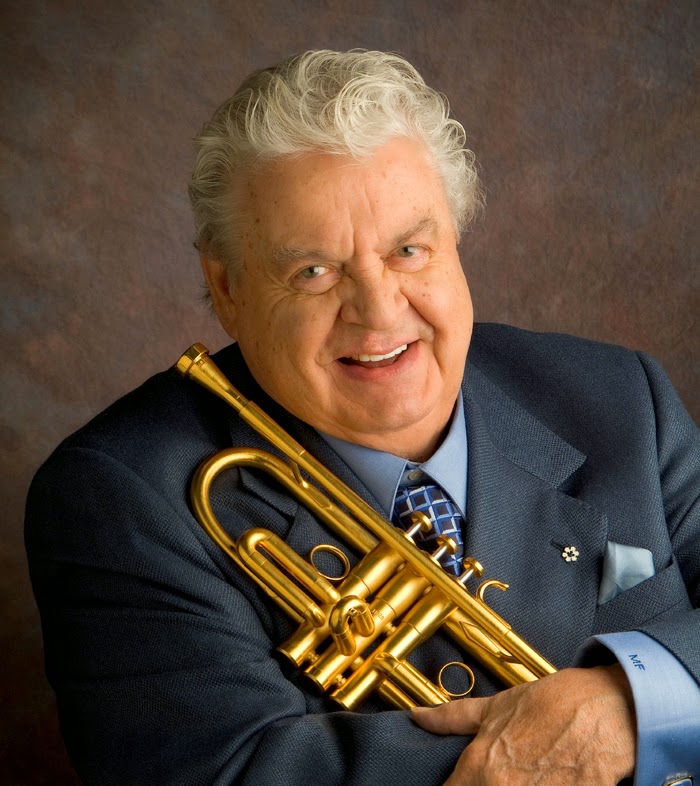
One of Ferguson’s defining characteristics was his ability to adapt and evolve with the changing landscape of music. He embraced new technologies and trends, incorporating electronic instruments and innovative arrangements into his work. This willingness to experiment and push boundaries kept his music fresh and relevant throughout his career.
Ferguson’s legacy continues to resonate in the world of jazz and beyond. His recordings remain essential listening for trumpet players and jazz enthusiasts, and his influence can be heard in the work of many contemporary musicians. He received numerous awards and honors during his lifetime, including a Grammy Award and induction into the DownBeat Jazz Hall of Fame.
Maynard Ferguson passed away on August 23, 2006, but his impact on the world of music endures. He left behind a rich legacy of recordings, performances, and memories that continue to inspire and entertain. His contributions to jazz and his commitment to education ensure that his influence will be felt for generations to come.
EDDIE FISHER
EDDIE FISHER, born on August 10, 1928, in Philadelphia, Pennsylvania, was a renowned American singer and actor. He rose to fame in the 1950s, captivating audiences with his smooth tenor voice and boy-next-door charm. Fisher’s career began to flourish after winning the Arthur Godfrey’s Talent Scouts radio show in 1949, which led to a recording contract with RCA Victor.
Fisher’s early success came with hits like Any Time and Tell Me Why, which quickly propelled him to stardom. His heartfelt performances and relatable lyrics resonated with audiences, making him a beloved figure in the music industry. In 1953, Fisher’s career reached new heights with the release of I’m Walking Behind You, a chart-topping single that solidified his status as a leading pop vocalist.
The same year, Fisher was given his own television show, Coke Time with Eddie Fisher, sponsored by Coca-Cola. The show was immensely popular, attracting millions of viewers and showcasing Fisher’s charisma and talent. His success on television further boosted his record sales, and he signed a lucrative contract with Coca-Cola, making him one of the highest-paid entertainers of his time.
Fisher continued to release hit songs throughout the 1950s, including Oh! My Pa-Pa (O Mein Papa), which became one of his most enduring hits. His rendition of this song showcased his emotional depth and vocal prowess, earning him critical acclaim and a loyal fan base. Other notable hits from this period include Wish You Were Here, Lady of Spain, Cindy, Oh Cindy, Downhearted, I Need You Now, and Heart.
In addition to his music career, Fisher made several appearances in films and on television. He starred in movies like Bundle of Joy (1956) alongside his then-wife Debbie Reynolds, and Butterfield 8 (1960) with Elizabeth Taylor. His on-screen presence and natural charm translated well to acting, further cementing his status as a versatile entertainer.
Fisher’s personal life, however, was marked by high-profile marriages and scandals. In 1955, he married actress Debbie Reynolds, and they had two children, Carrie and Todd Fisher. Their marriage ended in 1959 when Fisher’s affair with Elizabeth Taylor, Reynolds’ best friend, became public. Fisher and Taylor married later that year, but their union also ended in divorce in 1964.
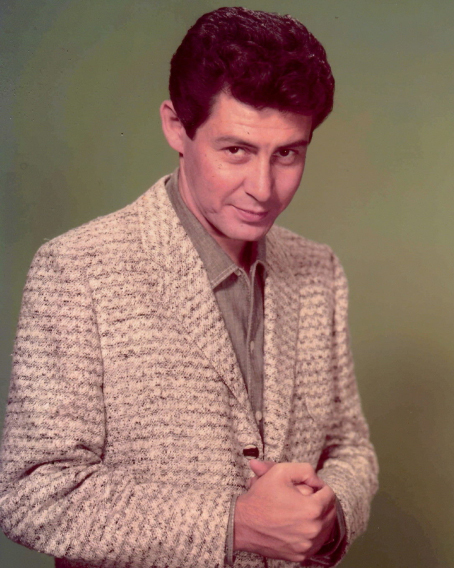
Fisher had two more marriages, first to Connie Stevens, with whom he had two daughters, Joely and Tricia Leigh Fisher, and later to Terry Richard. His final marriage was to Betty Lin, who passed away in 2001.
Despite the ups and downs in his personal life, Fisher remained a beloved figure in the entertainment industry. He continued to perform in stage shows in Las Vegas and other venues throughout the 1960s and 1970s. Although his career declined in the later years, Fisher’s legacy lived on through his music, his family, and his contributions to the entertainment world. He passed away on September 22, 2010, in Berkeley, California, at the age of 82, leaving behind a rich legacy of timeless music and memorable performances.
JEFF GOLDBLUM
JEFF GOLDBLUM is a multifaceted talent, known both for his acting prowess and his musical abilities. Born on October 22, 1952, in Pittsburgh, Pennsylvania, Goldblum’s journey in the entertainment industry began with his passion for acting and music.
Goldblum’s acting career took off in the 1970s with small roles in films like Death Wish (1974) and Annie Hall (1977). He gained wider recognition with his role in The Big Chill (1983) and his breakout performance in The Fly (1986). However, it was his role as Dr. Ian Malcolm in Jurassic Park (1993) that cemented his status as a Hollywood star. He reprised this role in several sequels, showcasing his ability to blend humor with drama.
Goldblum has also been a frequent collaborator with director Wes Anderson, appearing in films like The Life Aquatic with Steve Zissou (2004) and The Grand Budapest Hotel (2014). His versatility extends to television, where he has appeared in shows like Will & Grace and Portlandia, and hosted his own series, The World According to Jeff Goldblum.
Parallel to his acting career, Goldblum has pursued his passion for jazz music. Influenced by his late brother Rick, Goldblum began playing the piano and singing jazz in his youth. In 2001, he formed the Jeff Goldblum Jazz Band, which has performed at various jazz clubs and festivals. The band released its first album, The Capitol Studios Sessions, in 2018, receiving positive reviews for its lively and engaging performances.
Goldblum and Freda Payne recently collaborated on a track titled Lazy Afternoon. This song is part of Goldblum’s EP, Plays Well With Others, which features various collaborations.
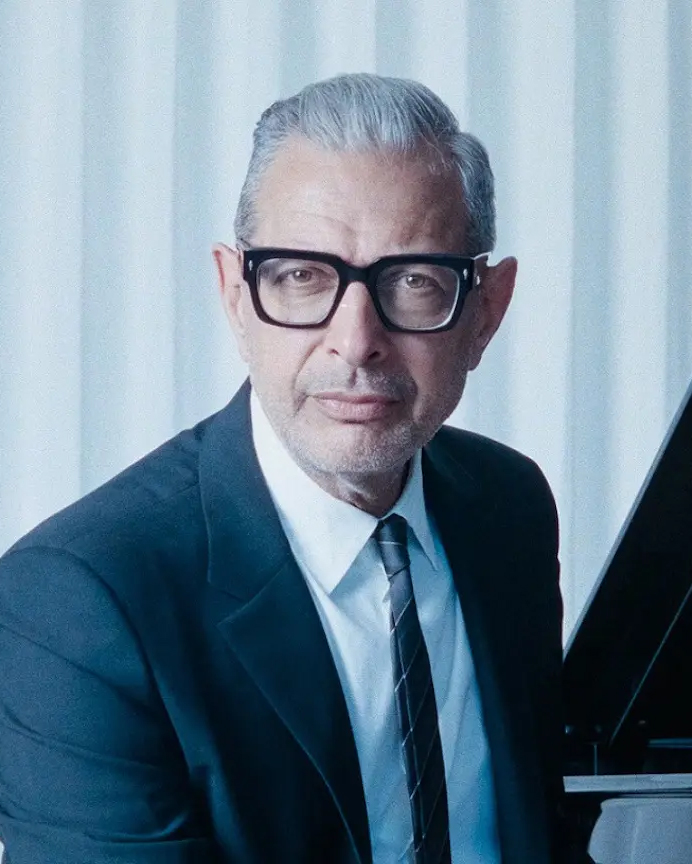
Freda Payne, a legendary singer known for her hit Band of Gold, brings her smooth, soulful voice to the track, creating a laid-back, jazz-infused atmosphere.
The song was originally written by Jerome Moross and John La Touche for the 1954 musical The Golden Apple. Goldblum’s band, The Mildred Snitzer Orchestra, also features prominently on the track, adding to its rich, jazzy feel.
Goldblum’s musical journey showcases his dedication to jazz, and he continues to perform and share his love of music with audiences around the world.
FREDA PAYNE
FREDA PAYNE is an American singer and actress known for her soulful voice and versatile talent that spans various genres, including jazz, R&B, and pop. Born on September 19, 1942, in Detroit, Michigan, Payne’s musical journey began at a young age, and she grew up surrounded by the sounds of Motown. Her career took off in the 1960s and 1970s, during which she achieved significant success and left an indelible mark on the music industry.
Payne’s breakthrough came with the release of her 1970 hit single Band of Gold, which became an international success and remains one of her most recognized songs. The song’s poignant lyrics and Payne’s emotive delivery resonated with audiences, propelling her to stardom. Band of Gold reached No. 3 on the Billboard Hot 100 chart and topped the charts in the UK, solidifying her status as a pop and soul sensation.
In addition to Band of Gold, Freda Payne’s discography includes several other notable tracks, such as Bring the Boys Home, a powerful anti-war anthem that became a hit during the Vietnam War era. Her music often carried social and political messages, reflecting the turbulent times and her own convictions.
Payne’s versatility as a performer is evident in her ability to seamlessly transition between different musical styles. She has released jazz albums, showcasing her deep appreciation for jazz standards and her incredible vocal range. Albums like After the Lights Go Down Low and Much More!!! and Come See About Me highlight her prowess in the jazz genre, earning her accolades from both fans and critics alike.
One of the standout tracks in Freda Payne’s repertoire is Lazy Afternoon, beautifully crafted to capture a sense of tranquility and introspection. She recorded Lazy Afternoon accompanied by actor and pianist Jeff Goldblum The song’s gentle melody and Payne’s emotive interpretation make it a timeless classic.
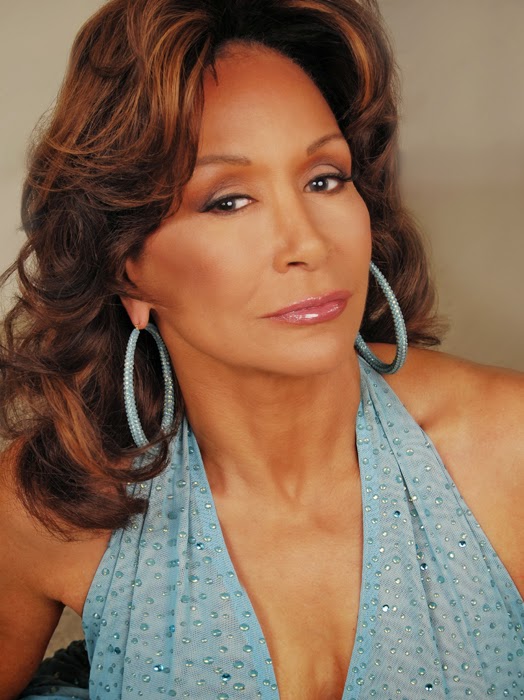
Beyond her musical achievements, Freda Payne has also ventured into acting, showcasing her talent on both stage and screen. She has appeared in movies, television shows, and theater productions, further demonstrating her versatility and dedication to her craft.
Throughout her career, Freda Payne has continued to perform and record music, maintaining her status as a beloved and respected artist. Her contributions to the music industry have earned her numerous awards and accolades, and she remains an influential figure in the world of soul and jazz.
CHICO HAMILTON
Foreststorn “Chico” Hamilton (1921-2013) was an influential American jazz drummer and bandleader, renowned for his versatility and innovative approach to jazz. Born in Los Angeles, he started his career in the early 1940s, collaborating with jazz legends like Lionel Hampton, Duke Ellington, and Billie Holiday.
In 1955, Hamilton made his mark as a bandleader with his album Chico Hamilton Quintet featuring Buddy Collette, which featured unconventional instrumentation for a jazz band, including a cello. His quintet became one of the key West Coast jazz bands, known for their unique sound.
Hamilton continued to innovate and experiment throughout the late 1950s and early 1960s, forming various versions of his quintet with musicians like Eric Dolphy and Paul Horn. His group was featured in films like Sweet Smell of Success (1957) and Jazz on a Summer’s Day (1960).
In 1961, Hamilton revamped his group, incorporating musicians such as Charles Lloyd and Gábor Szabó, and played chamber jazz with avant-garde elements. This group recorded for Columbia, Reprise, and Impulse Records.
Beyond jazz, Hamilton ventured into commercial and film production, scoring feature films like Repulsion (1965) and Mr. Ricco (1975), as well as numerous TV programs and commercials.
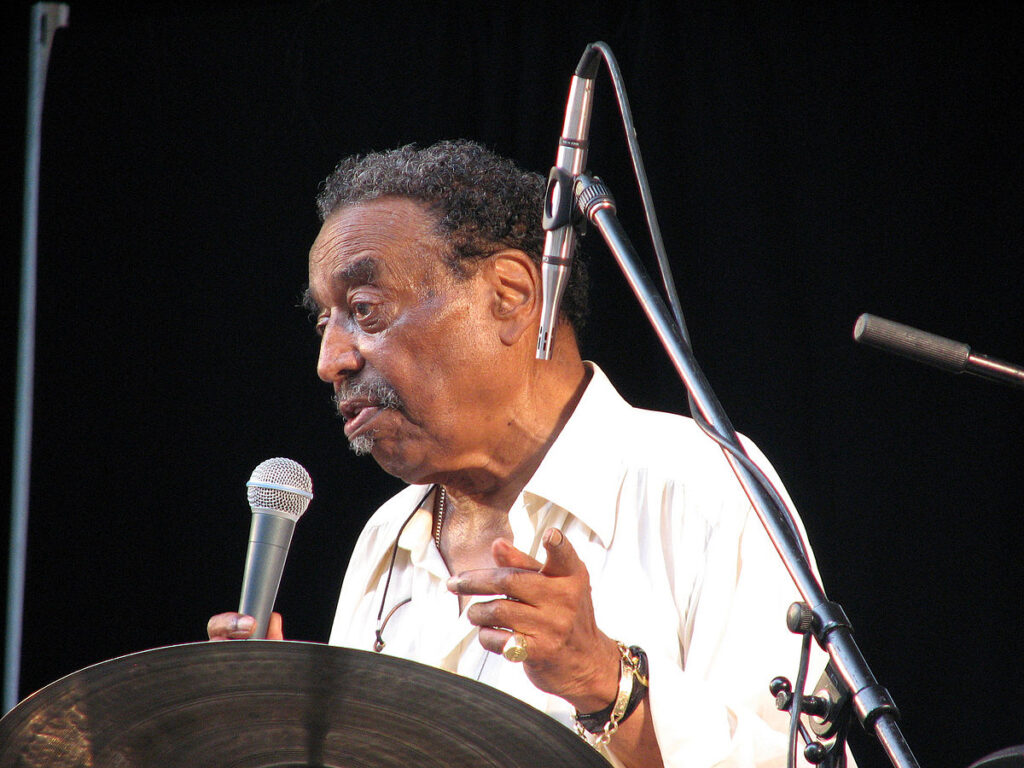
Throughout his career, Hamilton received numerous awards and honors for his contributions to jazz music. He continued to perform and record until his death in 2013 in New York City. His innovative approach and influence on future generations of musicians remain a significant part of his legacy.
FREDDIE HUBBARD
FREDDIE HUBBARD was an American jazz trumpeter who left an indelible mark on the world of jazz with his powerful and innovative playing. Born on April 7, 1938, in Indianapolis, Indiana, Hubbard began his musical journey at a young age. He studied trumpet at the Jordan Conservatory with the legendary Clifford Brown as his idol. By the time he was a teenager, he was already making waves in the local jazz scene.
In 1958, Hubbard moved to New York City, which was a pivotal moment in his career. There, he quickly became a sought-after musician, playing with some of the biggest names in jazz, including John Coltrane, Sonny Rollins, and Quincy Jones. His remarkable talent was evident in his ability to combine technical proficiency with emotional depth, creating a unique sound that resonated with both his peers and jazz enthusiasts.
Hubbard’s first significant recording as a leader came in 1960 with the album Open Sesame, which was met with critical acclaim. This was the beginning of a prolific recording career that spanned over five decades. Throughout the 1960s, he continued to release a series of influential albums, such as Hub Cap, Ready for Freddie, and Hub-Tones. His work during this period showcased his versatility and his ability to blend different styles, from hard bop to modal jazz.
One of the defining moments of Hubbard’s career was his collaboration with Art Blakey’s Jazz Messengers. Joining the group in 1961, he contributed to several classic recordings, including Free for All and Mosaic. His time with the Jazz Messengers helped him refine his style and gain further recognition as one of the leading trumpeters of his generation.
In addition to his work as a leader, Hubbard was a prolific sideman, appearing on numerous landmark recordings. He played on John Coltrane’s Ascension, Ornette Coleman’s Free Jazz, and Herbie Hancock’s Maiden Voyage. These collaborations not only showcased his versatility but also cemented his reputation as a key figure in the development of modern jazz.
The 1970s saw Hubbard experimenting with different styles, including jazz fusion and funk. His album Red Clay (1970) is considered one of the masterpieces of the fusion era, blending traditional jazz elements with electric instrumentation and funk rhythms. He continued to explore new sounds with albums like Straight Life and First Light, the latter of which won him a Grammy Award in 1972.
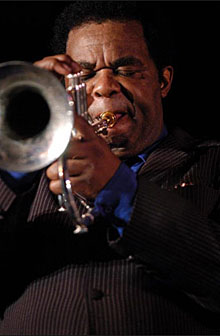
Despite the changing musical landscape, Hubbard remained a prominent figure in jazz throughout the 1980s and 1990s. He faced personal and health challenges, including a lip injury that temporarily affected his playing. However, his resilience and determination allowed him to continue performing and recording, albeit with a more reflective and lyrical style.
Hubbard passed away on December 29, 2008, but his music continues to inspire and resonate with listeners around the world. His legacy is a testament to his extraordinary talent, creativity, and passion for jazz.
DICK HYMAN
DICK HYMAN , born on March 8, 1927, in New York City, is a renowned American jazz pianist and composer with a career spanning over seven decades. His versatility as a musician has earned him recognition as a National Endowment for the Arts Jazz Masters fellow in 2017.
Hyman’s musical journey began in his childhood, influenced by his older brother’s jazz record collection and his uncle, the concert pianist Anton Rovinsky. He was classically trained by Rovinsky and developed a love for jazz while attending Columbia University, where he won a piano competition that awarded him lessons with swing-era pianist Teddy Wilson.
In the 1950s and early 1960s, Hyman established himself as a sought-after studio musician, collaborating with artists such as Tony Bennett, Perry Como, Guy Mitchell, Joni James, Marvin Rainwater, Ivory Joe Hunter, LaVern Baker, and Ruth Brown. His work extended beyond jazz, contributing to various genres including swing, lounge, and stride piano.
Hyman’s career also saw him embrace electronic music, becoming proficient with the Moog synthesizer and incorporating it into his compositions. His adaptability and willingness to explore different musical styles kept him relevant and innovative throughout his career. Some of his notable albums during this period include September Song: Dick Hyman Plays the Music of Kurt Weill (1953), Vernon Duke – A Piano Portrait by Dick Hyman (1953), Noel Coward – A Piano Portrait by Dick Hyman (1953), For All We Know (1962), and Satchmo Remembered – The Music of Louis Armstrong at Carnegie Hall (1975).
In addition to his performing and recording career, Hyman has made significant contributions as an arranger and music director. He has arranged music for numerous orchestras and television shows, showcasing his ability to lead and direct musical ensembles.
Hyman’s impact on jazz and popular music is evident in his extensive discography, which includes solo piano albums, collaborations with other jazz greats, and contributions to film and television soundtracks.
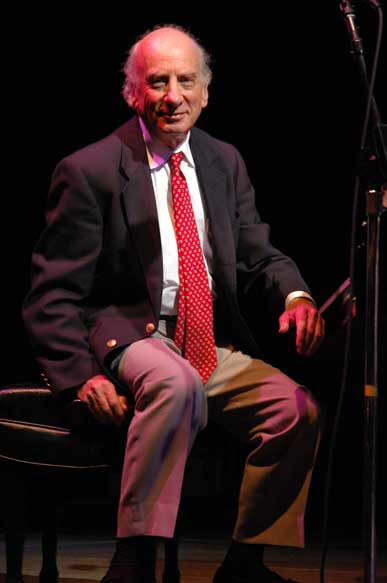
His later works such as Deck the Halls (2000), A Jazz Piano Christmas from NPR (2010), and You’re My Everything (2010) highlight his continued relevance and creative output. His dedication to his craft and his ability to evolve with the changing musical landscape have solidified his legacy as a true jazz master.
As he continues to perform and share his musical knowledge, Dick Hyman remains an inspiration to aspiring musicians and a testament to the enduring power of jazz. His career is a remarkable journey of talent, versatility, and passion for music.
MARK ISHAM
MARK ISHAM is a versatile and accomplished American musician and composer, known for his work in jazz, electronic music, and film scoring. Born on September 7, 1951, in New York City, Isham was exposed to music from a young age, thanks to his parents who were both professional violinists. He began studying classical piano, violin, and trumpet as a child, and by the age of 12, he made his professional debut as a trumpet player with a small symphony orchestra.
In his teenage years, Isham’s family moved to the San Francisco Bay Area, where he expanded his musical interests into jazz. He played with the Oakland Symphony Orchestra, San Francisco Symphony, and San Francisco Opera, as well as a diverse range of contemporary jazz and rock bands. Isham also performed with notable artists such as the Beach Boys, Esther Phillips, Charles Lloyd, Horace Silver, Pharoah Sanders, and Dave Liebman.
Isham’s career took a significant turn when he joined pianist Art Lande to form an acoustic ensemble called Rubisa Patrol in 1976. The group released two albums on ECM Records, which helped Isham gain recognition in the jazz world. He also formed the fusion band Group 87 with guitarist Peter Maunu, synthesist Patrick O’Hearn, and drummer Terry Bozzio in 1979.
In the early 1980s, Isham began experimenting with electronic music and signed with Windham Hill Records. His solo debut album, Vapor Drawings, was released in 1983, and he soon caught the attention of film director Carroll Ballard, who hired him to compose the score for the critically acclaimed film Never Cry Wolf. This marked the beginning of Isham’s prolific career as a film composer.
Over the years, Isham has composed scores for over 200 film and television productions, including The Hitcher, Point Break, A River Runs Through It, Of Mice and Men, Warrior, Nell, Blade, Crash, The Black Dahlia, The Lucky One, October Sky, and Once Upon a Time. His work has earned him numerous accolades, including nine Grammy Award nominations, an Academy Award nomination for A River Runs Through It, and a Golden Globe Award nomination for Nell. He has also won six Primetime Emmy Awards, including one for Outstanding Original Main Title Theme Music for EZ Streets.
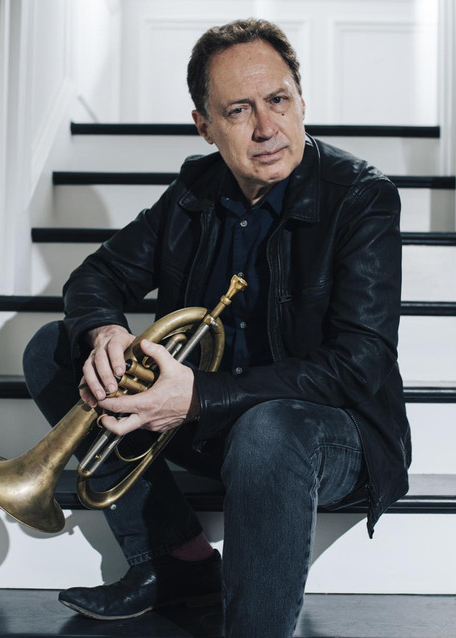
Isham’s musical style is diverse, encompassing crossover jazz, post-bop, ambient, progressive electronic, chamber jazz, and new age. He has collaborated with a wide range of artists, including David Sylvian, Van Morrison, Joni Mitchell, Terry Bozzio, XTC, and Siouxsie Sioux. His ability to create unforgettable melodies and experiment with innovative musical palettes has made him a sought-after composer in the film and television industry.
In addition to his work as a composer, Isham has also acted in films and directed The Cowboy and the Ballerina in 1998. He continues to be active in the music industry, releasing albums and collaborating with other artists.
As he continues to perform and share his musical knowledge, Dick Hyman remains an inspiration to aspiring musicians and a testament to the enduring power of jazz. His career is a remarkable journey of talent, versatility, and passion for music.
JACKIE AND ROY
JACKIE AND ROY were an iconic American jazz vocal duo consisting of husband and wife, Jackie Cain (1928–2014) and Roy Kral (1921–2002). They sang together for an impressive 56 years and recorded almost 40 albums. Their unique blend of voices, with Jackie’s soprano and Roy’s baritone, created harmonies that were both unusual and captivating.
The duo first teamed up in 1946 and gained recognition through their stint with Charlie Ventura’s band from 1948 to 1949. Their performance of Lou Stein’s East of Suez was particularly notable for showcasing their vocal range and harmony. Shortly after leaving Ventura’s band, Jackie and Roy married in June 1949 and continued to work together regularly.
In the early 1950s, they had their own television show in Chicago and worked in Las Vegas from 1957 to 1960. They settled in New York City in 1963 and appeared in some television commercials. Throughout their career, they recorded for multiple record labels and performed extensively.
Jackie and Roy were known for their swing style, clever chord changes, and optimistic performances. They recorded songs by various composers, including Alec Wilder, whose music they favored. In fact, they paid tribute to Wilder by recording an entire album of his songs, titled An Alec Wilder Collection, ten years after his death.
Despite the rise of rock music in the mid-1960s, Jackie and Roy continued to tour and record, maintaining their dedicated fan base. They collaborated with other artists, including Andre and Dory Previn, and Don Sebesky. Their ability to adapt to changing musical tastes while staying true to their unique style was a testament to their talent and dedication.
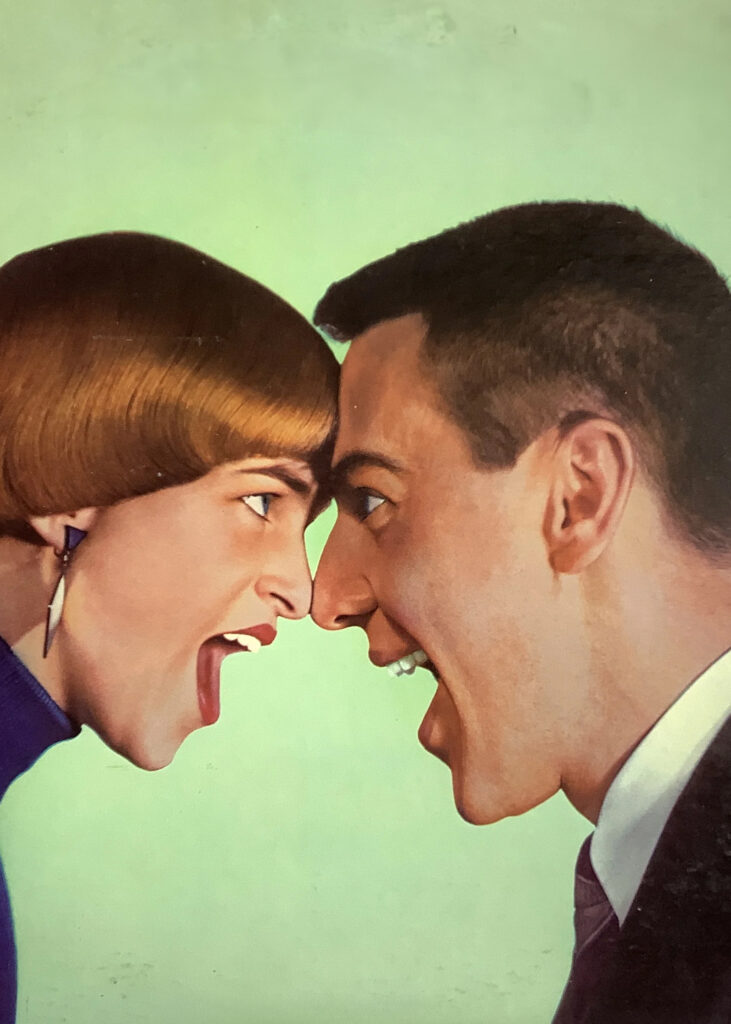
Jackie and Roy’s discography includes albums such as Jackie Cain and Roy Kral (1955), Sing Baby Sing! (1956), The Glory of Love (1956), Double Take (1961), Changes: Jackie & Roy (1966), and Time & Love (1972). They continued to perform and record until Roy Kral’s death in August 2002.
FRAN JEFFRIES
FRAN JEFFRIES was a talented American singer, dancer, actress, and model, born Frances Ann Makris on May 18, 1937, in Palo Alto, California. She began her career in the late 1950s and quickly made a name for herself in the entertainment industry.
Jeffries started her career by singing with Bob Scobey’s orchestra, where she gained valuable experience and exposure. Her big break came when she married crooner Dick Haymes in 1958, and they formed a popular nightclub act together. During this time, Haymes asked songwriter-pianist Dave Frishberg to write a song for Jeffries, which resulted in the classic tune Peel Me a Grape.
In 1958, Jeffries made her film debut in The Buccaneer, playing the role of Cariba. She continued to work in film, appearing in notable movies such as The Pink Panther (1963), where she sang Meglio Stasera (It Had Better Be Tonight) while leading a line dance with Peter Sellers, David Niven, and others. She also appeared in Sex and the Single Girl (1964) and Harum Scarum (1965).
Jeffries was known for her glamorous and charismatic stage presence, which made her a favorite in nightclubs and on television. She performed on shows like The Ed Sullivan Show and The Tom Jones Show, showcasing her singing and dancing talents. In 1969, she performed a duet with Tom Jones on You’ve Got What It Takes, and in 1970, she appeared on The Smokey Robinson Show, where she sang solo numbers and performed with Smokey Robinson and Stevie Wonder.
In addition to her work in film and television, Jeffries posed for Playboy magazine twice, first in 1971 and again in 1982, in pictorials titled Fran-tastic! and Still Fran-tastic! respectively. Her beauty and charm made her a popular figure in the entertainment world.
Jeffries was married four times throughout her life, including to actor-turned-director Richard Quine, with whom she appeared in several films.
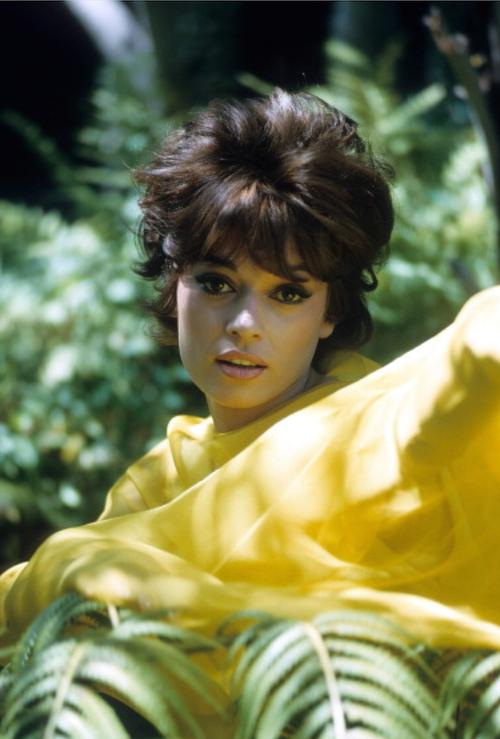
Despite the ups and downs in her personal life, she remained dedicated to her career and continued to perform and entertain audiences.
Fran Jeffries passed away on December 15, 2016, at the age of 79, due to multiple myeloma. Her contributions to music, film, and television left a lasting legacy, and she is remembered as a talented and charismatic entertainer who brought joy to many.
STAN KENTON
STAN KENTON was an influential American jazz bandleader, pianist, composer, and arranger, born Stanley Newcomb Kenton on December 15, 1911, in Wichita, Kansas. Known for his innovative and progressive approach to big-band jazz, Kenton’s career spanned nearly five decades from the 1930s to the late 1970s, leaving a lasting legacy in the world of music.
Kenton began his musical journey as a teenager, learning to play the piano from local musicians. He quickly developed a passion for jazz and started performing in various bands around the San Francisco Bay Area. By the early 1930s, he traveled to speakeasies in San Diego and Las Vegas, honing his skills as a pianist. In 1936, he joined Gus Arnheim’s band, marking his first significant step in the jazz world.
In 1940, Kenton formed his own orchestra, known for its unique sound and complex arrangements. He collaborated with many talented arrangers and composers, including Pete Rugolo, Johnny Richards, and Robert Graettinger. Kenton’s music often combined elements of classical music with jazz, creating a distinctive and forward-looking style.
Among his best selling albums are Artistry in Rhythm (1946), Encores (1949), Cuban Fire! (1956) and Standards in Silhouette (1960), which features the track, Lazy Afternoon.
Throughout his career, Kenton’s band featured some of the most prominent jazz musicians of the time, such as saxophonists Lee Konitz and Art Pepper, trumpeter Conte Candoli, and trombonist Frank Rosolino. His emphasis on elaborate arrangements and unconventional instrumentation set his band apart from others in the genre.
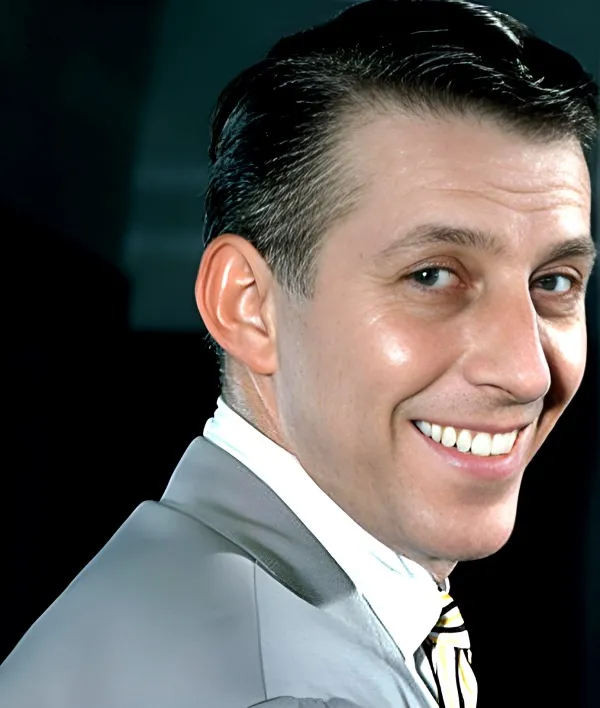
Kenton was also a pioneer in jazz education, founding the Stan Kenton Jazz Camp in 1959 at Indiana University. The camp provided young musicians with the opportunity to learn from some of the best jazz artists and educators, helping to shape the next generation of jazz performers.Despite facing criticism for his bold and sometimes controversial musical choices, Kenton remained dedicated to his vision of progressive jazz. He continued to tour and record until his death on August 25, 1979, in Los Angeles, California. His contributions to jazz were recognized with several awards, including two Grammy Awards and a place in the DownBeat Jazz Hall of Fame.
PEGGY KING
PEGGY KING, born on February 16, 1930, in Greensburg, Pennsylvania, is an American jazz singer known for her vibrant and engaging performances. She gained the nickname “Pretty Perky Peggy King” and became a popular figure in the jazz and traditional pop genres during the 1950s.
King’s career took off when she joined big bands led by Charlie Spivak, Ralph Flanagan, and Ray Anthony. Her big break came in 1952 when MGM signed her to a contract, leading to a singing cameo in Vincente Minnelli’s film The Bad and the Beautiful and a series of commercial jingles for Hunt’s tomato sauce. These jingles caught the attention of Mitch Miller at Columbia Records, who signed her to a long-term contract.
Under Columbia Records, King released two best-selling albums: Wish Upon a Star and Girl Meets Boy. She also had a string of hit singles, including her popular song Make Yourself Comfortable in 1954. Her success on the charts and her engaging television performances on shows like The George Gobel Show and The Jack Benny Program solidified her status as a rising star in the music industry.
In 1955, King sang the Oscar-nominated song Count Your Blessings during the Academy Awards telecast, and both Billboard and Down Beat magazine named her Best New Singer of 1955–56. She continued to make appearances on various television shows, including American Bandstand, Maverick, Dragnet, and The Steve Allen Show.
King’s career also extended to film and television acting. She appeared in the 1955 comedy Abbott and Costello Meet the Mummy and played the stewardess Janet Turner in the suspense thriller Zero Hour! (1957), which later inspired the satirical comedy Airplane!. She starred opposite Tab Hunter in the television musical Hans Brinker, or The Silver Skates (1958) and in a musical version of Jack and the Beanstalk.
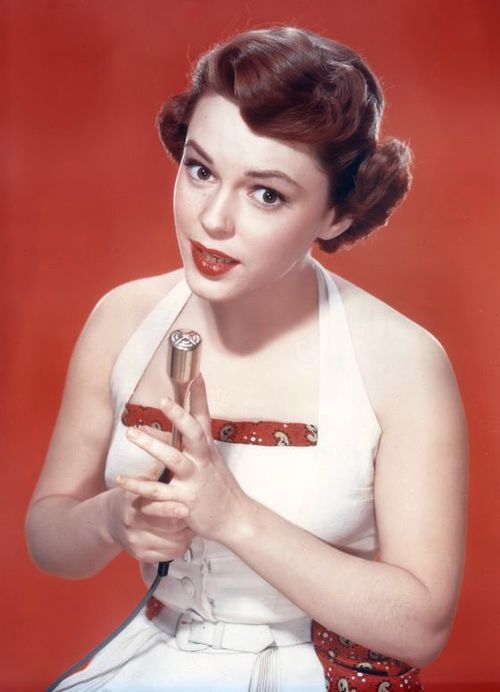
Throughout her career, King released several albums, including Lazy Afternoon (1959), Oh What a Memory We Made Tonight, and Peggy King Sings Jerome Kern. In 2016, she released her first new album in 36 years, showcasing her enduring talent and passion for music.
King’s contributions to jazz and traditional pop music have been recognized with her induction into the Broadcast Pioneers of Philadelphia Hall of Fame in 2010. She continues to perform in nightclubs, theaters, and at charitable and private events, delighting audiences with her timeless voice and vibrant stage presence .
IRENE KRAL
IRENE KRAL was an American jazz singer born on January 18, 1932, in Chicago, Illinois, to Czechoslovakian parents. She began her professional singing career as a teenager, influenced by her older brother, Roy Kral, who was also a musician. Irene’s career spanned from the 1950s until her untimely death from breast cancer in 1978 at the age of 46.
Kral’s early career saw her performing with notable bands such as Woody Herman’s and Chubby Jackson’s. She joined Maynard Ferguson’s band in the late 1950s, which led to her first solo recording contract. Her delicate yet deliberate vocal style, influenced by Carmen McRae, set her apart in the jazz world. Kral’s ability to pick tasteful, lesser-known material and her intimate, understated delivery earned her critical acclaim.
Throughout her career, Kral released several albums, including The Band and I with Herb Pomeroy (1958), SteveIreneO! (1959), Better Than Anything with Junior Mance (1963), Wonderful Life (1965), and Where Is Love? (1974). Her album Gentle Rain with Alan Broadbent (1978) and Angel Eyes (1978) are also highly regarded.
One of Kral’s biggest hits was This Is Always, which gained renewed popularity when it was featured in Clint Eastwood’s 1995 film The Bridges of Madison County. This exposure introduced her music to a wider audience and solidified her legacy in jazz history.
Kral’s career was marked by her collaborations with other jazz greats, including Stan Kenton, Terry Gibbs, and Shelly Manne. Her ability to convey emotion through her voice and her impeccable diction made her a standout performer. Despite her relatively short career, Kral’s impact on jazz music continues to be felt, and her recordings are still cherished by jazz enthusiasts.
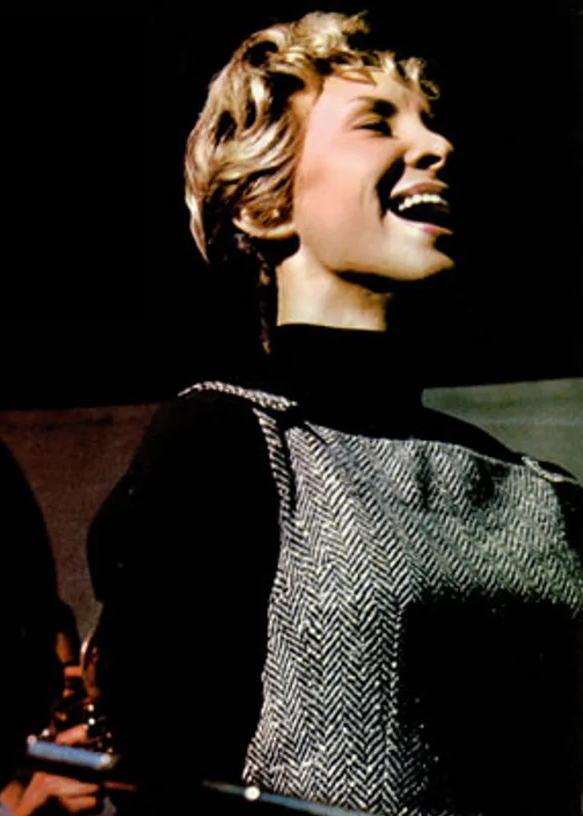
Irene Kral’s career was one of quiet brilliance and understated elegance. Her contributions to jazz, particularly her ability to interpret and deliver songs with emotional depth, have left an enduring legacy. Her biggest hits, such as This Is Always and Where Is Love?, remain timeless classics that showcase her unique talent and artistry.
PETE LA ROCA
PETE LA ROCA, born Peter Sims on April 7, 1938, in Harlem, New York, was an influential American jazz drummer and attorney. He adopted the stage name “La Roca” early in his career while playing timbales in Latin bands, a name that stuck with him until he returned to jazz in the late 1970s.
La Roca’s career began in earnest in 1957 when he joined Sonny Rollins’ trio, contributing to the historic album A Night at the Village Vanguard. His drumming style, influenced by his time in Latin bands, was characterized by a sharp attack on the snare and cymbals, combined with a strong sense of swing and groove. Over the next decade, he played with many jazz greats, including Jackie McLean, Slide Hampton, John Coltrane, Marian McPartland, Art Farmer, Freddie Hubbard, and Charles Lloyd.
In 1965, La Roca released his first album as a leader, Basra, on Blue Note Records. The album featured Joe Henderson on tenor saxophone, Steve Kuhn on piano, and Steve Swallow on bass. Basra is a mix of hard bop and avant-garde jazz, with tracks like “Malagueña” and “Candu” showcasing La Roca’s powerful yet precise drumming.
La Roca’s second album as a leader, Turkish Women at the Bath, was released in 1967 on the Douglas label. This album featured a different lineup, with Chick Corea on piano and John Gilmore on tenor saxophone. The album continued to explore the boundaries of jazz, combining elements of hard bop with more experimental sounds.
In 1968, La Roca decided to leave music to pursue a career in law, a decision influenced by the declining market for acoustic jazz at the time.
He returned to jazz in the late 1970s, using his given surname “Sims” but often adding “La Roca” in quotation marks to help audiences identify him.
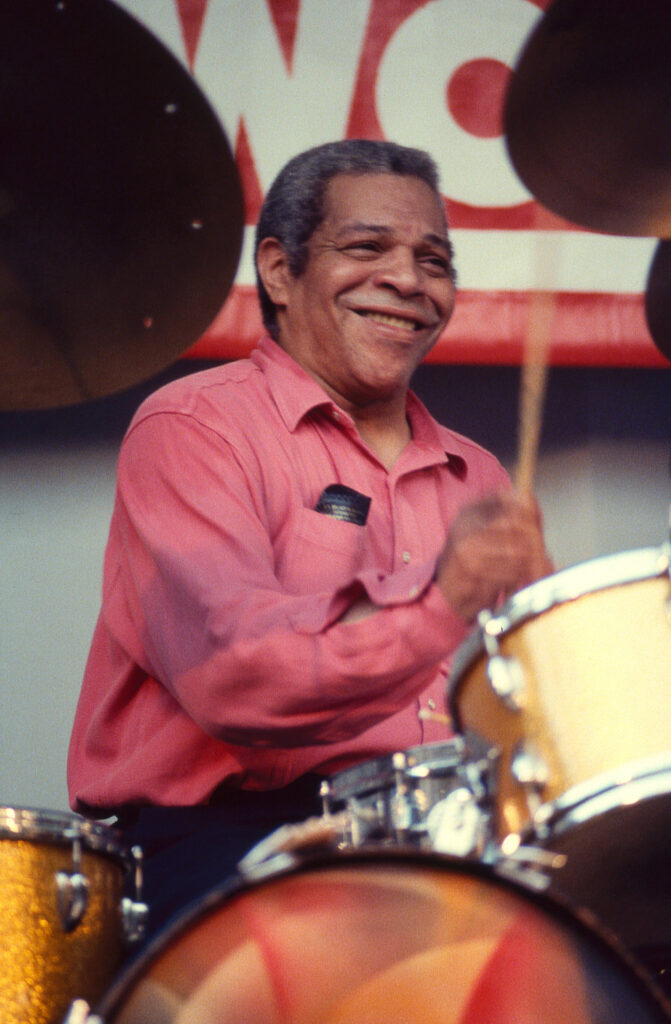
He continued to perform on an occasional basis until his death from lung cancer on November 20, 2012.
La Roca’s contributions to jazz, both as a drummer and a leader, have left a lasting impact on the genre. His albums Basra and Turkish Women at the Bath are considered classics and continue to be celebrated by jazz enthusiasts.
CAROL LAWRENCE
CAROL LAWRENCE, born Carolina Maria Laraia on September 5, 1932, in Melrose Park, Illinois, is an American actress and singer renowned for her work in musical theatre and television. She is best known for originating the role of Maria in the Broadway musical West Side Story in 1957, a performance that earned her a Tony Award nomination for Best Featured Actress in a Musical.
Lawrence’s early life was marked by her Italian heritage and a passion for performing. She graduated from Proviso Township High School and briefly attended Northwestern University before leaving to pursue her career in the arts. Her Broadway debut came in 1951 as a Ted Adair Dancer in the revue Borscht Capades, where she performed alongside Joel Grey.
Her breakthrough came with West Side Story, where she played Maria opposite Larry Kert’s Tony. The show ran for two years, and Lawrence reprised her role in the 1960 revival. Her success in the musical did not translate to film stardom, as Natalie Wood was cast as Maria in the 1961 movie adaptation, with Lawrence’s singing voice dubbed by Marni Nixon.
Throughout her career, Lawrence appeared in numerous Broadway productions, including Subways Are for Sleeping, Saratoga, I Do! I Do!, and Kiss of the Spider Woman. She also performed in national tours of Funny Girl, The Unsinkable Molly Brown, The Sound of Music, Sweet Charity, and No, No, Nanette. Her talents extended beyond Broadway, as she also starred in television dramas such as Rawhide, The Six Million Dollar Man, and Murder, She Wrote.
Lawrence’s personal life included three marriages. She was first married to fellow performer Cosmo Allegretti from 1956 to 1959, then to singer Robert Goulet from 1963 to 1981, and finally to John Gregory Guydus from 1982 to 1983. She has two children from her marriages.
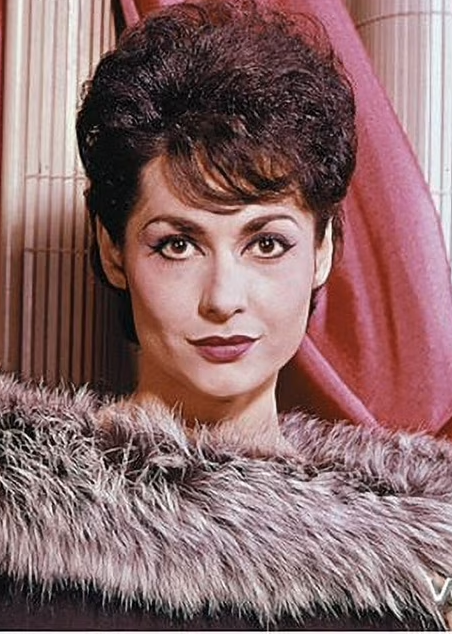
In addition to her stage and screen work, Lawrence has published an autobiography and a cookbook. She continues to perform and engage with her audience, showcasing her enduring talent and dedication to the arts.
Carol Lawrence’s legacy is one of versatility and resilience, having navigated the highs and lows of a long and varied career in entertainment. Her contributions to musical theatre and television have left an indelible mark on the industry, and she remains a beloved figure among fans and peers alike.
ROD MCKUEN
ROD MCKUEN, born Rodney Marvin Woolever on April 29, 1933, in Oakland, California, was an American poet, singer-songwriter, and composer. He was one of the best-selling poets in the United States during the late 1960s and 1970s, with over 60 million books sold and 100 million records sold worldwide.
McKuen’s early life was marked by hardship and instability. Raised by his mother and a violent alcoholic stepfather, he experienced physical and sexual abuse. He ran away from home and supported himself through various jobs, including ranch hand, surveyor, railroad worker, lumberjack, rodeo cowboy, stuntman, and radio disc jockey. Despite his challenging upbringing, McKuen began keeping a journal, which led to his first poetry and song lyrics.
McKuen’s career took off in the 1950s when he started performing in nightclubs and writing songs. He gained recognition for his translations and adaptations of the songs of Belgian singer-songwriter Jacques Brel, which helped bring Brel’s work to the English-speaking world. McKuen’s poetry often dealt with themes of love, the natural world, and spirituality, resonating with a wide audience.
In the 1960s and 1970s, McKuen became a household name, releasing numerous albums, writing songs for artists like Frank Sinatra, Johnny Cash, and Nina Simone, and earning two Academy Award nominations for his music compositions. He was a regular on late-night television and even sold out Carnegie Hall on his birthday for several years.
Some of McKuen’s greatest songs include Seasons in the Sun, The World I Used to Know, Love’s Been Good to Me, and The Lovers. His albums Greatest Hits of Rod McKuen (1969) and Seasons in the Sun (1964) are among his most popular works.
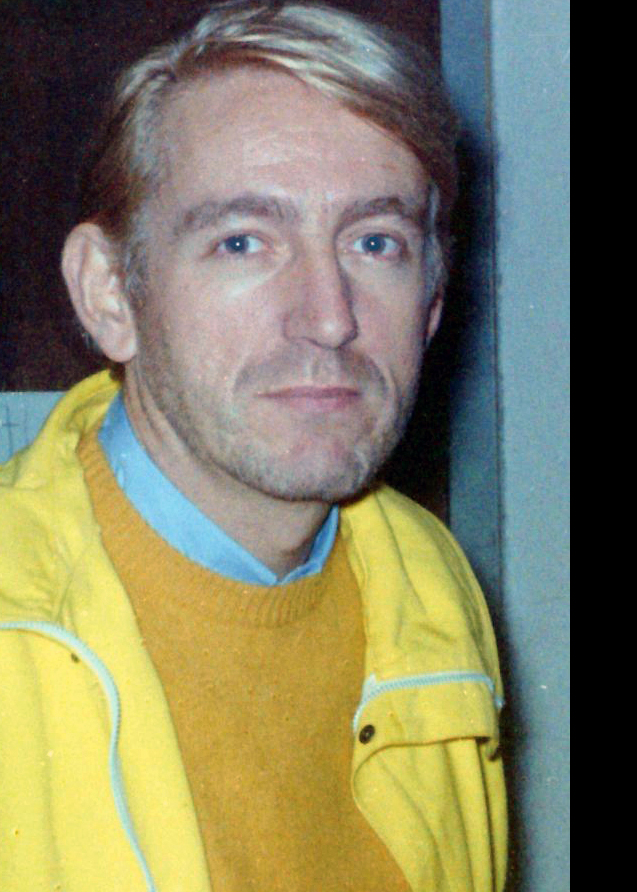
Despite his success, McKuen’s popularity waned in the late 1970s and 1980s, and he eventually faded from the public eye. However, his work continues to be appreciated by a dedicated fan base, and he remains an influential figure in the world of poetry and music.
McKuen’s legacy is one of resilience and creativity, having overcome a difficult childhood to become one of the most successful poets and songwriters of his time. His contributions to the arts have left an indelible mark, and his work continues to inspire new generations of artists and fans.
HELEN MERRILL
HELEN MERRILL, born Jelena Ana Milcetic on July 21, 1929, in New York City, is an American jazz vocalist known for her rich, expressive voice and extensive career spanning over six decades. Her parents were Croatian immigrants, and she began singing in jazz clubs in the Bronx at the age of fourteen. By sixteen, she had taken up music full-time.
Merrill’s recording career began in 1952 when she was asked to sing A Cigarette for Company with Earl Hines’ band. This recording led to her signing with Mercury Records’ newly launched EmArcy label. Her debut album, Helen Merrill (1954), featured legendary jazz trumpet player Clifford Brown and bassist Oscar Pettiford, and was produced and arranged by Quincy Jones. The album was a success and established Merrill as a significant figure in the jazz world.
Throughout the 1950s and 1960s, Merrill continued to record and perform, collaborating with renowned musicians such as Barry Galbraith, Frank Wess, Marian McPartland, Bill Evans, and Gil Evans. Her follow-up album, Dream of You (1956), arranged by Gil Evans, laid the musical foundations for Evans’ later work with Miles Davis.
Merrill spent much of the late 1950s and 1960s touring Europe, where she enjoyed greater commercial success than in the United States. She settled in Italy for a time, recording albums and performing with jazz notables like Chet Baker, Romano Mussolini, and Stan Getz. In 1967, she moved to Japan after marrying Donald J. Brydon, Tokyo-based Asia Bureau Chief of United Press International. Merrill developed a strong following in Japan and continued to record and perform there.
In the 1980s, Merrill returned to the United States and continued her recording career, experimenting with different genres and collaborating with various artists. Her albums Helen Merrill/John Lewis (1976) and Chasin’ the Bird (1980) were both nominated for Grammy Awards. She also produced albums for other musicians and hosted a radio show in Tokyo.
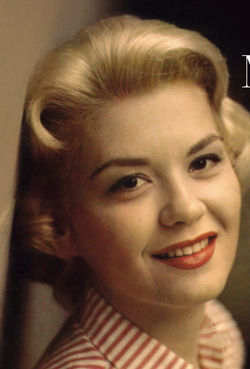
Merrill’s later career saw her recording albums of the music of Irving Berlin, Jerome Kern, Cole Porter, and Richard Rodgers & Oscar Hammerstein. Her 1980 album Casa Forte, produced and arranged by Torrie Zito, was particularly well-received. Merrill’s career continued into the 21st century, with her contributions to jazz remaining influential and beloved by fans worldwide.
Helen Merrill’s legacy is one of resilience and creativity, having navigated the highs and lows of a long and varied career in music. Her contributions to jazz have left an indelible mark, and her work continues to inspire new generations of artists and fans
MARTY PAICH
MARTY PAICH was an American pianist, composer, arranger, record producer, music director, and conductor. He was a significant figure in jazz, pop, and film music, known for his exceptional arrangements and collaborations with many renowned artists.
Paich began his musical journey at a young age, learning accordion and piano. By the age of ten, he was leading bands and performing at weddings. During World War II, he served in the U.S. Air Corps and led the Army Air Corps band. After the war, he used the G.I. Bill to further his musical education, earning a master’s degree in composition from the Los Angeles Conservatory of Music.
In the 1950s, Paich gained recognition for his work as a music director for Peggy Lee and as an arranger for jazz legends such as Chet Baker, Ray Brown, Stan Kenton, Shelly Manne, Buddy Rich, Shorty Rogers, and Art Pepper. His collaboration with Mel Tormé was particularly notable, resulting in the classic album Mel Tormé with the Marty Paich Dek-Tette (1956). Paich’s arrangements often made small groups sound like full-size orchestras, showcasing his talent for creating rich, full sounds.
Throughout the 1960s, Paich transitioned to working with pop singers such as Sammy Davis Jr., Dean Martin, Barbra Streisand, Andy Williams, and Dinah Shore. He also composed music for films and television shows, winning an Emmy Award for his work on the television drama Ironside. Paich’s versatility and ability to adapt to different genres made him a sought-after arranger and composer.
In the 1970s and 1980s, Paich continued to work in film and television, leading studio orchestras for variety programs like The Glen Campbell Goodtime Hour and The Smothers Brothers Comedy Hour. He also replaced Nelson Riddle in The Sonny & Cher Comedy Hour.
.
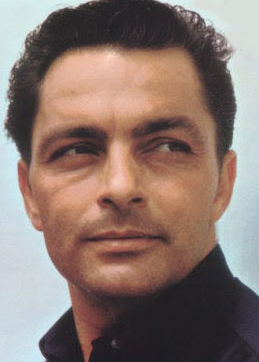
His contributions to film scores included orchestrating and conducting for movies such as The Fugitive, Pretty Woman, and Prince of Tides.Paich’s legacy is one of innovation and excellence in music arrangement and composition. His work with both jazz and pop artists, as well as his contributions to film and television, have left a lasting impact on the music industry. He passed away in 1995, in Santa Ynez, California.
LUCY REED
LUCY REED, born Lucille Dollinger on January 14, 1921, in Marshfield, Wisconsin, was an American jazz singer renowned for her rich vocal style and emotive performances. She began her musical journey as a teenager, singing on KSTP radio with a group of four girls, earning a modest $5 per week. Her early exposure to music and performance laid the foundation for her later career.
Reed’s life took a significant turn when she met her first husband, jazz drummer Joey DeRidder, while living in Iron Mountain, Michigan. They married in June 1941 and had a son the following year. However, tragedy struck when Joey was killed in action over Munich, Germany, on July 31, 1944.
In the 1950s, Reed’s career began to flourish. She performed with notable musicians such as Bill Evans in New York City in 1955 and Dick Marx and Johnny Frigo in 1957. Her collaborations with these talented artists helped to cement her reputation in the jazz community. Reed released several albums during her career, including The Singing Reed (1957) and This Is Lucy Reed (1957), both of which showcased her unique vocal style and ability to connect with her audience. Her collaboration with Bill Evans on her album The Singing Reed (1957) was particularly noteworthy, as it showcased her interpretive skills and Evans’ emerging talent as a pianist
Reed was known for her dedication to her craft and her ability to convey deep emotion through her singing. Her performances were marked by a profound sense of intimacy and connection with her listeners. She continued to perform and record music throughout her life, leaving a lasting impact on the jazz scene in Chicago and beyond.
Reed’s contributions to jazz music were significant, and her recordings remain cherished by fans and fellow musicians alike.
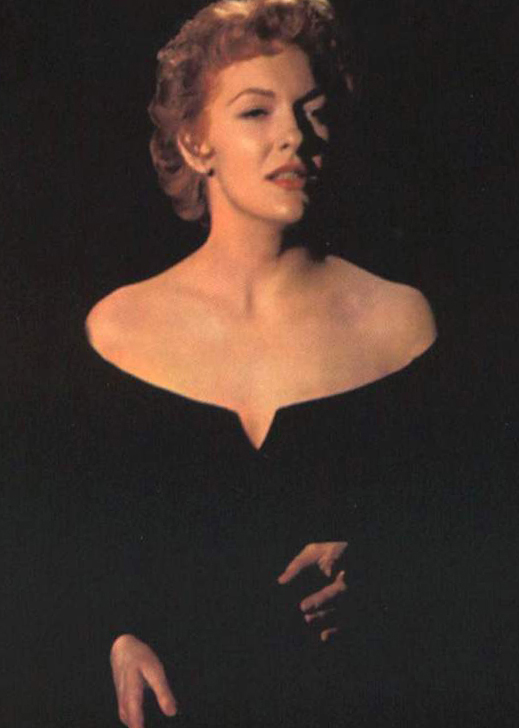
She passed away on July 1, 1998, but her legacy lives on through her music and the influence she had on the jazz genre.
Reed’s life and career are a testament to her resilience and passion for music. Despite facing personal hardships and challenges, she remained dedicated to her art and continued to inspire others with her talent. Her work continues to be celebrated by jazz enthusiasts and serves as an enduring example of the power of music to touch the hearts and souls of listeners.
RENEE ROSNES
RENEE ROSNES, born Irene Louise Rosnes on March 24, 1962, in Regina, Saskatchewan, Canada, is a highly acclaimed jazz pianist, composer, and arranger. She grew up in North Vancouver, British Columbia, where she began taking classical piano lessons at the age of three. Her interest in jazz music was sparked in high school, thanks to her school’s band director, Bob Rebagliati.
Rosnes attended the University of Toronto, where she pursued classical performance with pianist William Aide. In 1985, she received a Canada Council for the Arts grant, which allowed her to move to New York City to further her studies. Shortly after arriving in New York, Rosnes became the pianist for the Blue Note Records label band, Out of the Blue, and recorded the album Spiral Staircase with the band in 1989.
Rosnes’ international career took off when tenor saxophonist Joe Henderson hired her to play with his quartet in 1986. She also became a member of the Wayne Shorter Band in 1988 and joined trombonist J.J. Johnson’s Quintet in 1989, remaining his pianist of choice until he retired in 1997. Additionally, she frequently performed with vibraphonist Bobby Hutcherson and recorded For Sentimental Reasons with his quartet in 2007.
Rosnes has released numerous albums throughout her career, including her debut album on Blue Note Records in 1990. She has recorded ten albums for the label and continues to be an active and influential figure in the jazz community. In 2020, she joined the jazz supergroup Artemis, which includes trumpeter Ingrid Jensen, saxophonist Nicole Glover, alto saxophonist/flutist Alexa Tarantino, bassist Noriko Ueda, drummer Allison Miller, and Rosnes serving as pianist and musical director.
Artemis has been recognized as the “Jazz Group of the Year” by the DownBeat Readers Poll in both 2023 and 2024. Rosnes’ own album Written in the Rocks (2016) was named one of the ten Best Jazz Albums of the Year by The Chicago Tribune and awarded a Canadian JUNO.
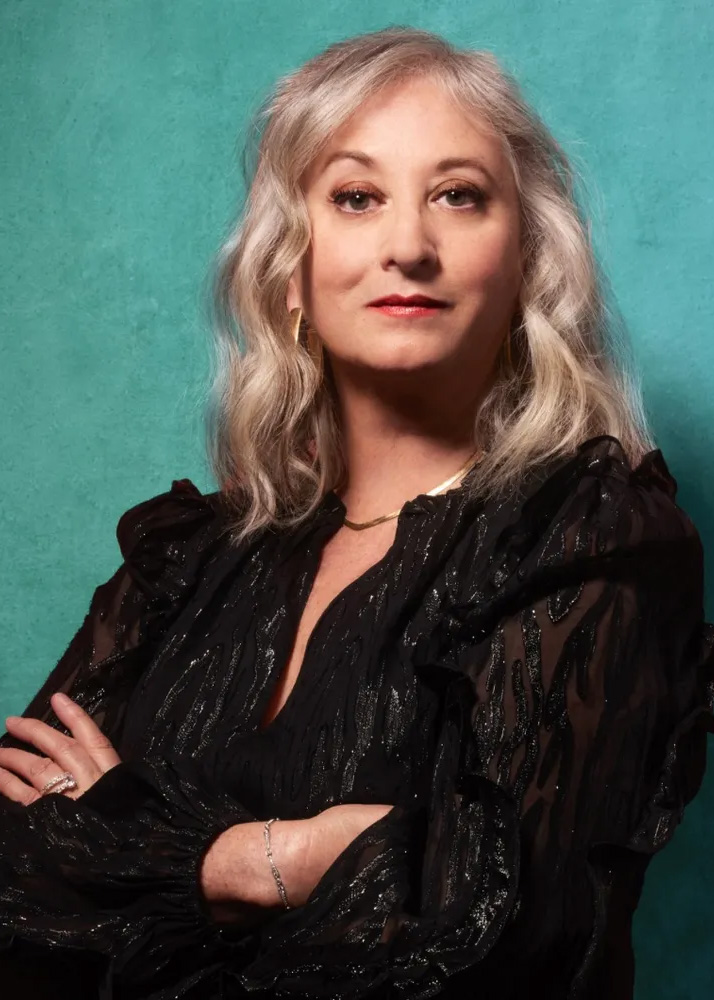
Her 2020 album Kinds of Love features saxophonist Chris Potter, bassist Christian McBride, drummer Carl Allen, and Brazilian percussionist Rogério Boccato.
Rosnes has also been involved in various projects outside of performing, including co-founding the Canadian Jazz Master Awards and serving as the artistic director of the Oscar Peterson International Jazz Festival in Ontario, Canada. She has been honored with multiple Canadian JUNO Awards for her solo jazz albums and continues to be a prominent figure in the jazz world.
TOMMY SANDS
TOMMY SANDS, born on August 27, 1937, in Chicago, Illinois, is an American pop music singer and actor who became an overnight sensation and instant teen idol in the late 1950s. His career began at a young age, and he quickly rose to fame with his hit song Teen-Age Crush, which reached No. 2 on the Billboard Hot 100 and No. 1 on Cashbox.
Sands was born into a musical family; his father, Ben, was a pianist, and his mother, Grace Dickson, was a big-band singer. He started playing the guitar at the age of eight and soon landed a job performing on a local radio station in Shreveport, Louisiana. By the time he was 15, he had moved to Houston, Texas, where he joined a band and continued to perform regularly.
In 1957, Sands starred in an episode of Kraft Television Theater called The Singing Idol, where he played a singer similar to Elvis Presley. His performance of Teen-Age Crush in the show was a huge success, propelling him to stardom. He went on to release his debut album, Steady Date with Tommy Sands, in the same year.
Sands’ success continued with appearances on television shows and in movies, including the 1958 musical drama Sing, Boy, Sing, which was based on his life. He also sang the Oscar-nominated song Friendly Persuasion at the 1957 Academy Award ceremonies. Despite his early success, Sands’ career faced challenges, including a difficult divorce from actress Nancy Sinatra, Frank Sinatra’s daughter.
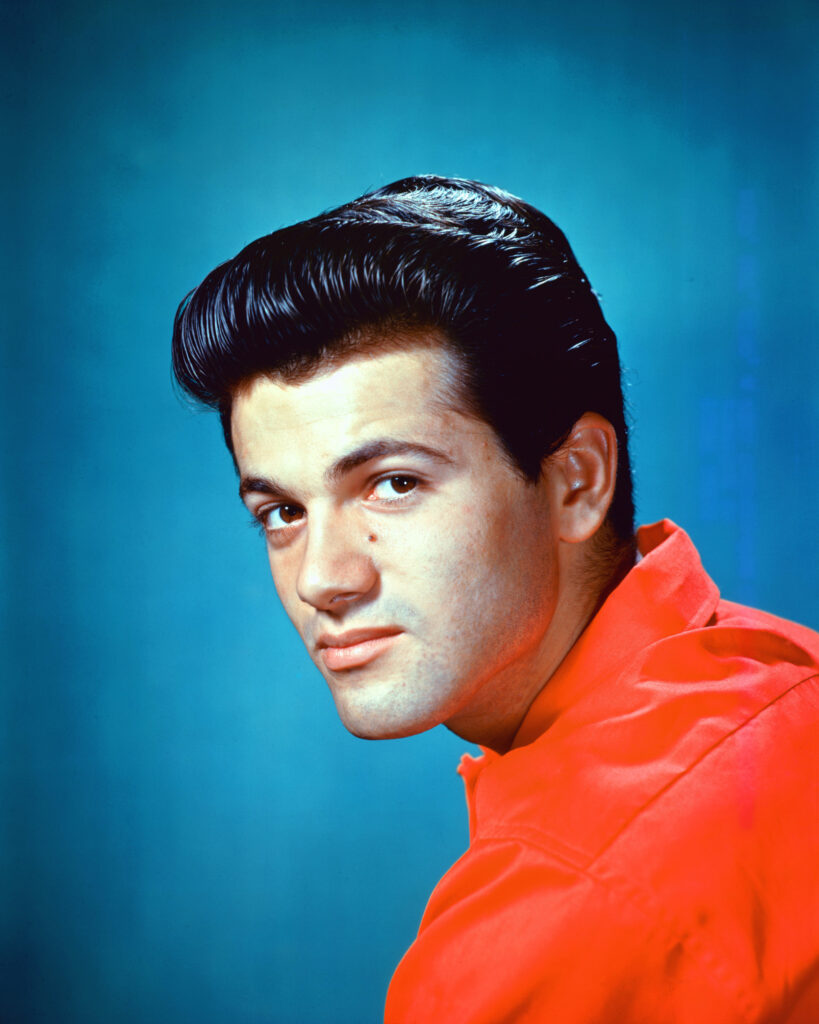
Throughout his career, Sands continued to perform and record music, although he never quite reached the same level of fame as he did in the late 1950s. He later moved to Hawaii, where he had a nightclub and a clothing business. In 1990, he performed at a rock festival in England, showcasing his enduring appeal.
SERENDIPITY SINGERS
SERENDIPITY SINGERS The Serendipity Singers were a popular American folk music group formed in the early 1960s. The group originated from the University of Colorado, where seven original members of a group called the Newport Singers came together. They later moved to New York City and, after some changes in the lineup, became known as the Serendipity Singers.
Their debut single, Don’t Let the Rain Come Down (Crooked Little Man), was a major hit, reaching #6 on the Billboard Hot 100 and earning a Grammy nomination for Best Performance by a Chorus in 1965. The group’s name was sold in the 1970s, leading to new lineups performing under the Serendipity Singers name into the early 21st century.
One of their notable recordings is Lazy Afternoon, which was included in their 1964 album Take Your Shoes Off with The Serendipity Singers. The song was written by Jerome Moross and John La Touche and has been performed by various artists over the years. The Serendipity Singers’ version of Lazy Afternoon is a beautiful, laid-back track that showcases their harmonious vocal style and folk influences.
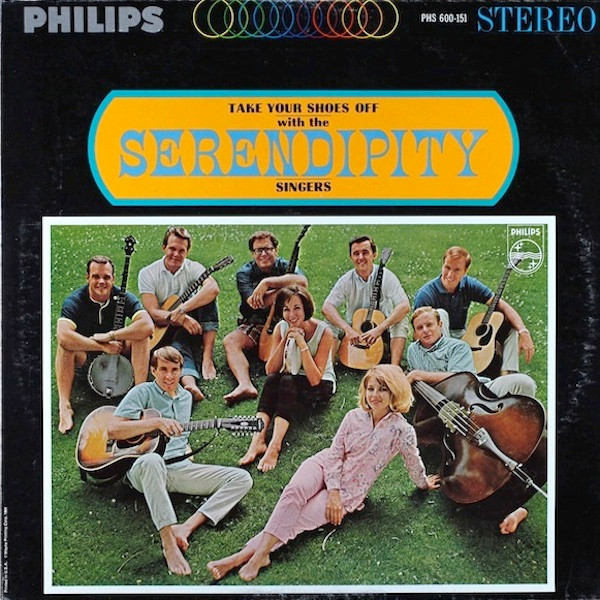
The Serendipity Singers’ music often featured a mix of traditional folk songs and contemporary compositions, and they were known for their tight harmonies and engaging performances. Their success in the mid-1960s helped to popularize folk music and paved the way for other folk groups of the era.
GEORGE SHEARING
GEORGE SHEARING, born on August 13, 1919, in Battersea, London, was a British jazz pianist and composer who became a prominent figure in the jazz world. Despite being blind from birth, Shearing developed an extraordinary talent for music, starting piano lessons at the age of three and later attending the Linden Lodge School for the Blind.
Shearing’s early career saw him performing in local pubs and forming an all-blind band, Claude Bampton’s Blind Orchestra. His talent caught the attention of Leonard Feather, leading to his first BBC radio broadcast in 1937. During World War II, Shearing joined Harry Parry’s band and later performed with Stéphane Grappelli’s Swingtette.
In 1947, Shearing moved to the United States, where his harmonically complex style, blending swing, bebop, and modern classical influences, gained popularity. He formed the George Shearing Quintet in 1949, featuring Margie Hyams on vibraphone, Chuck Wayne on guitar, John Levy on bass, and Denzil Best on drums. This lineup recorded several successful albums, including the hit single September in the Rain, which sold over a million copies worldwide.
One of Shearing’s most famous compositions is Lullaby of Birdland, written in 1952, which became a jazz standard. His music was characterized by its elegance, sophisticated harmonies, and melodic charm, earning him a reputation as a master of cool jazz.
Throughout his career, Shearing collaborated with many renowned musicians, including Nat King Cole, with whom he recorded several albums. Nat King Cole Sings/George Shearing Plays, released in 1962 features a mix of jazz and pop standards, showcasing the smooth vocals of Cole and the elegant piano accompaniment of Shearing.

He continued to perform and record music well into his later years, releasing albums on various labels such as MGM, Capitol, and Concord.
Shearing’s contributions to jazz were recognized with numerous awards and honors, including a Grammy Lifetime Achievement Award in 2004. He passed away on February 14, 2011, in New York City.
BARBRA STREISAND
BARBRA STREISAND, born Barbara Joan Streisand on April 24, 1942, in Brooklyn, New York, is an iconic American singer, actress, songwriter, producer, and director. With a career spanning over six decades, she has achieved remarkable success across multiple fields of entertainment, becoming one of the few performers to win an EGOT (Emmy, Grammy, Oscar, and Tony).
Streisand’s career began in the early 1960s when she performed in nightclubs and Broadway theaters. Her debut album, The Barbra Streisand Album (1963), won the Grammy Award for Album of the Year, and she quickly became a household name. Throughout her recording career, Streisand has topped the US Billboard 200 chart with 11 albums, including People (1964), The Way We Were (1974), Guilty (1980), and The Broadway Album (1985).
In 1975, Streisand released the album Lazy Afternoon, which showcased her versatility as a singer. The album included the title track, Lazy Afternoon, a beautiful and evocative song that highlighted Streisand’s vocal range and emotional depth. The album was well-received, reaching No. 12 on the Billboard 200 chart and earning praise from critics for its lush arrangements and Streisand’s expressive performances.
In addition to her music career, Streisand ventured into film by the end of the 1960s. She starred in the critically acclaimed Funny Girl (1968), winning the Academy Award for Best Actress. She also starred in other successful films such as Hello, Dolly! (1969), What’s Up, Doc? (1972), and The Way We Were (1973). Streisand won the Academy Award for Best Original Song for writing the love theme from A Star Is Born (1976), becoming the first woman to be honored as a composer.
Streisand’s achievements in film continued with the release of Yentl (1983), which she wrote, produced, directed, and starred in. The film won an Oscar for Best Original Score and a Golden Globe for Best Motion Picture Musical. She also produced and directed The Prince of Tides (1991) and The Mirror Has Two Faces (1996).
With sales exceeding 150 million records worldwide, Streisand is one of the best-selling recording artists of all time. According to the Recording Industry Association of America (RIAA), she is the second-highest certified female artist in the United States, with 68.5 million certified album units.
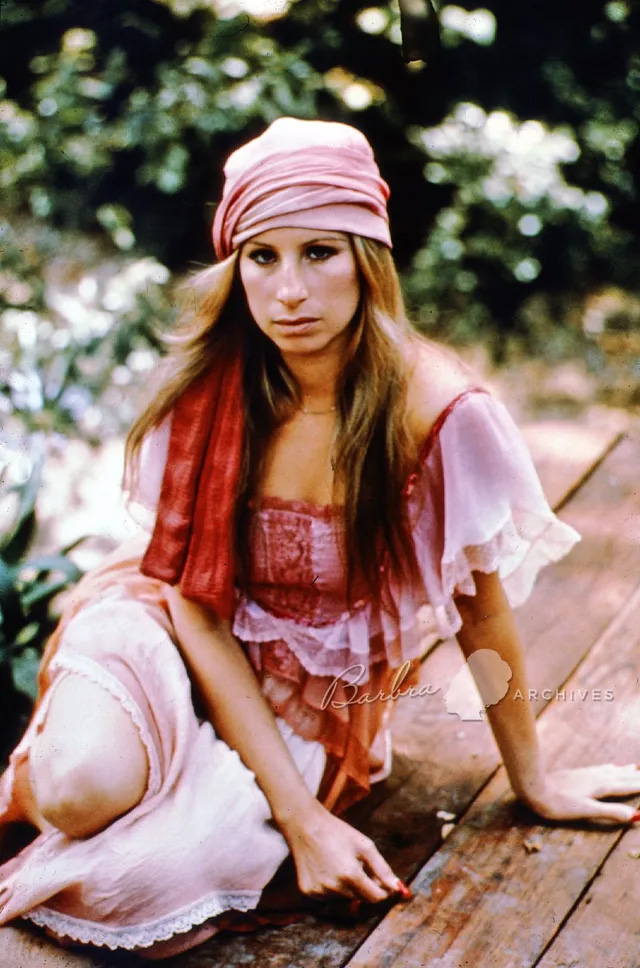
Streisand has also received numerous awards and honors, including the Presidential Medal of Freedom in 2015 and the Kennedy Center Honors in 2008.
Streisand’s impact on the entertainment industry is undeniable, and her legacy continues to inspire generations of artists. Her ability to excel in multiple fields and her dedication to her craft have solidified her status as one of the most successful and influential figures in show business.
BILLY STRITCH
BILLY STRITCH, born on February 12, 1962, in Houston, Texas, is an accomplished American composer, arranger, vocalist, and jazz pianist. He is best known for his long-standing collaboration with Liza Minnelli, serving as her confidant, music director, and piano player for over two decades. Stritch’s musical journey began at a young age, and he has made significant contributions to the world of jazz and popular music.
Stritch’s early life was marked by a strong interest in music. He grew up in Sugar Land, Texas, and attended John Foster Dulles High School, where he participated in the school’s jazz band. He later attended the University of Houston, where he played in a jazz vocal trio that performed at various jazz festivals for nine years. After the trio disbanded, Stritch moved to New York City to pursue his musical career.
In New York, Stritch met singer Marilyn Maye, with whom he frequently collaborated as an accompanist and music director. He also formed the vocal trio Montgomery, Plant, and Stritch, which performed extensively in New York and Europe until 1990. A chance meeting with Liza Minnelli in 1991 led to a long and fruitful collaboration. Stritch arranged the music for Minnelli’s show at Radio City Music Hall and opened her act on a national tour.
Stritch’s career includes notable achievements beyond his work with Minnelli. He co-wrote the Grammy Award-winning country song Does He Love You, which was recorded by Reba McEntire and Linda Davis. The song reached number one on the Billboard Country music chart and won the Grammy Award for Best Country Vocal Collaboration. Stritch also arranged music for top performers such as Linda Lavin, Linda Eder, and Christine Ebersole.
In addition to his collaborations, Stritch has released several solo albums, including Billy Stritch (1992), Ordinary Miracles (2020), and Billy’s Place (2022). His latest album, Billy’s Place, features a collection of his favorite songs from his online concerts during the COVID-19 pandemic. Stritch’s weekly live-stream show, Billy’s Place, continues to celebrate the Great American Songbook with songs and stories from his varied career.

Stritch’s contributions to jazz and popular music have earned him recognition and respect in the industry. His ability to blend his talents as a composer, arranger, vocalist, and pianist has made him a versatile and influential figure in the world of music. Whether performing with Liza Minnelli, collaborating with other top artists, or showcasing his solo work, Billy Stritch continues to captivate audiences with his musical prowess.
PAT SUZUKI
PAT SUZUKI, born Chiyoko Suzuki on September 22, 1930, in Cressey, California, is an American popular singer and actress best known for her role in the original Broadway production of the musical Flower Drum Song and her performance of the song I Enjoy Being a Girl in the show. As a Nisei or second-generation Japanese American, Suzuki faced significant challenges during World War II when her family was forced to evacuate their home and enter American internment camps.
Despite these hardships, Suzuki pursued her passion for music. She attended five colleges and graduated from San Jose State University with teaching credentials for elementary and secondary schools. However, she decided against a career in education and instead traveled to Europe. Running out of money in New York, she took a part in a touring production of The Teahouse of the August Moon.
Suzuki’s career took off when she became a local celebrity at the Colony Club in Seattle in 1955, performing over 2,000 consecutive shows. Her talent caught the attention of Bing Crosby, who helped her obtain a recording contract with RCA Victor. She recorded several albums, including her 1958 eponymous album Pat Suzuki (also known as Miss Pony Tail), and won the Downbeat National Disc Jockey Poll award for “America’s best new female singer” that year.
Suzuki received national exposure through appearances on network television programs such as The Lawrence Welk Show, The Frank Sinatra Show, and Tonight Starring Jack Paar. Her success led to a role in Rodgers and Hammerstein’s Flower Drum Song on Broadway, where she became famous for her performance of I Enjoy Being a Girl.
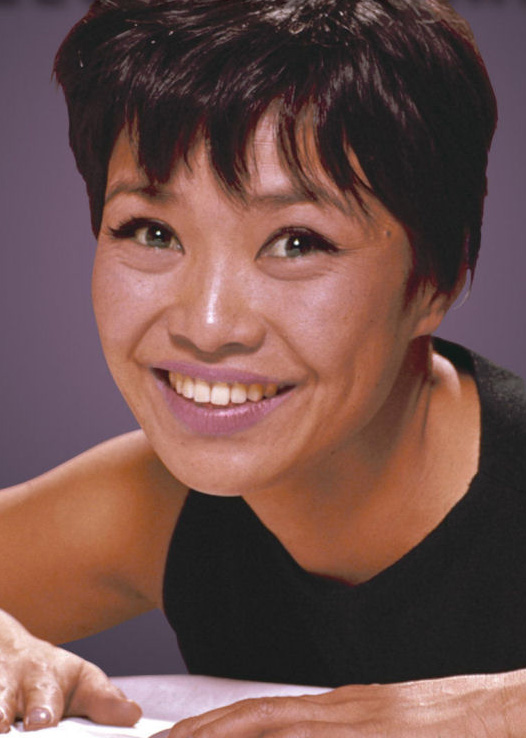
Throughout her career, Suzuki continued to perform and record music, even after marrying photographer Mark Shaw and starting a family. She also supported Asian-American rights and performed at prestigious venues like Lincoln Center. In 1999, she released The Very Best of Pat Suzuki.
Suzuki’s contributions to music and her resilience in the face of adversity have made her an influential figure in the entertainment industry. Her legacy continues to inspire many, and her story is a testament to the power of perseverance and talent.
CECIL TAYLOR
CECIL TAYLOR, born on March 25, 1929, in Long Island City, New York, was a pioneering American jazz pianist and poet. Known for his avant-garde and free jazz styles, Taylor’s music was characterized by energetic, physical performances, complex improvisations, and intricate polyrhythms. His technique, often compared to percussion, earned him the nickname “eighty-eight tuned drums” by Val Wilmer.
Taylor began playing piano at the age of six and received classical training. He studied at the New York College of Music and the New England Conservatory of Music, where he majored in popular music arrangement. Influenced by contemporary European art music, Taylor’s early works showed nods to conventional post-bop forms, but he soon moved towards more experimental and free-form jazz.
In 1956, Taylor released his first album, Jazz Advance, featuring soprano saxophonist Steve Lacy. This album marked the beginning of his career as a musical radical. Throughout the 1950s and 1960s, Taylor’s music grew increasingly complex, often making it difficult for him to find gigs as club owners found his long pieces unprofitable. Despite this, he continued to innovate and push the boundaries of jazz.
Taylor’s collaborations with other jazz legends, such as saxophonist John Coltrane, further solidified his place in the jazz world. His 1959 album Looking Ahead! showcased his virtuosic techniques and swift stylistic shifts, distinguishing him from the jazz mainstream.
In the late 1960s, Taylor’s music became even more intense, with fast tempos and extended improvisations. He continued to record and perform well into his 80s, releasing albums like Ailanthus/Altissima: Bilateral Dimensions of 2 Root Songs in 2009.
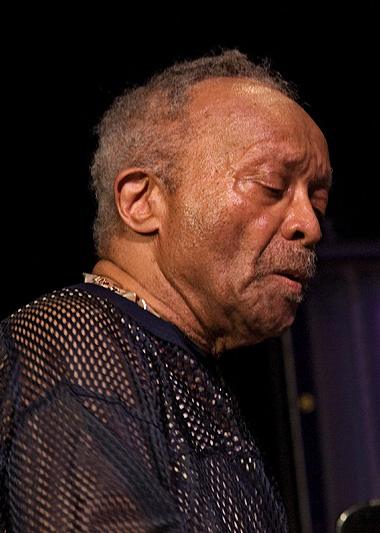
Taylor’s career spanned over 50 years, and he remained musically productive until his death on April 5, 2018, in Brooklyn, New York.
Taylor’s contributions to jazz were recognized with numerous awards, including being named a Jazz Master by the National Endowment for the Arts in 1990.
MARIA PUGA LAREO

MARIA PUGA LAREO is an accomplished jazz and Brazilian music vocalist, songwriter, and producer from Buenos Aires, Argentina. She began her career performing in local clubs and co-wrote the theme song for Limite 4X4, a popular Fox Sports TV program. In 2005, Maria released her debut album Body & Soul and later moved to Los Angeles in 2014 to expand her musical career. She has released three albums, with her latest being My Universe in 2024, featuring collaborations with renowned musicians.
Maria is known for her beautiful arrangements and impressive vocal control. She has performed at various jazz festivals and theaters, showcasing her unique blend of jazz and Brazilian music. Her dedication and passion for music continue to captivate audiences with her soulful voice and captivating performances.
She sings a sultry version of LAZY AFTERNOON at a gig in 2024 at Vic’s Las Vegas. It belongs on an album someday.
SLOWKLANG

SLOWKLANG is an Austrian trio known for their unorthodox, decelerated soundscapes that blend song form and advanced improvisation. The band consists of AMINA BOUROYEN on vocals and effects, ROBIN GADERMAIER on e-bass and effects, and Robert Unterköfler ROBERT UNTERKÖFLER on saxophone and clarinet. Their music is groovy, tension-filled, fragile, and powerful. One of their popular tracks is LAZY AFTERNOON, recorded during an Ö1 Radiosession in August 2021.
Improvisation meets atmospheric sounds, spontaneity meets emotionality. The foundation for their collective music-making lies in their own compositions and arrangements.
https://www.slowklang.com/
YALE WHIFFENPOOFS
YALE WHIFFENPOOFS established in 1909, are the oldest collegiate a cappella group in the United States. Each year, 14 senior Yale students are selected to join the group, competing for admission in the spring of their junior year. The Whiffenpoofs are known for their rich tradition of musical excellence and their extensive touring schedule, performing over 200 concerts annually across six continents.
The group’s name, “Whiffenpoof,” was inspired by a Broadway musical called Little Nemo, where the term was used humorously. The Whiffenpoofs’ repertoire includes a mix of old Yale tunes, jazz standards, and popular songs from various eras. They are best known for their performance of The Whiffenpoof Song, which has become an iconic piece associated with the group.
Throughout their history, the Whiffenpoofs have performed at prestigious venues such as Lincoln Center, the White House, Carnegie Hall, and the Rose Bowl. They have also appeared on television shows like Jeopardy!, Saturday Night Live, and The West Wing. The group’s tradition includes performing at Mory’s Temple Bar, a historic Yale institution, where they circulate from room to room during their Monday night performances.
The Whiffenpoofs also have a tradition of taking a three-month world tour during the summer, which allows them to share their music with audiences around the globe. This touring experience is a highlight for many members, providing them with the opportunity to connect with fans and fellow musicians internationally.
The group’s alumni include notable figures such as Cole Porter, who sang with the Whiffenpoofs in 1913. The Whiffenpoofs continue to be a celebrated tradition at Yale, maintaining close ties with their alumni through an active alumni organization.
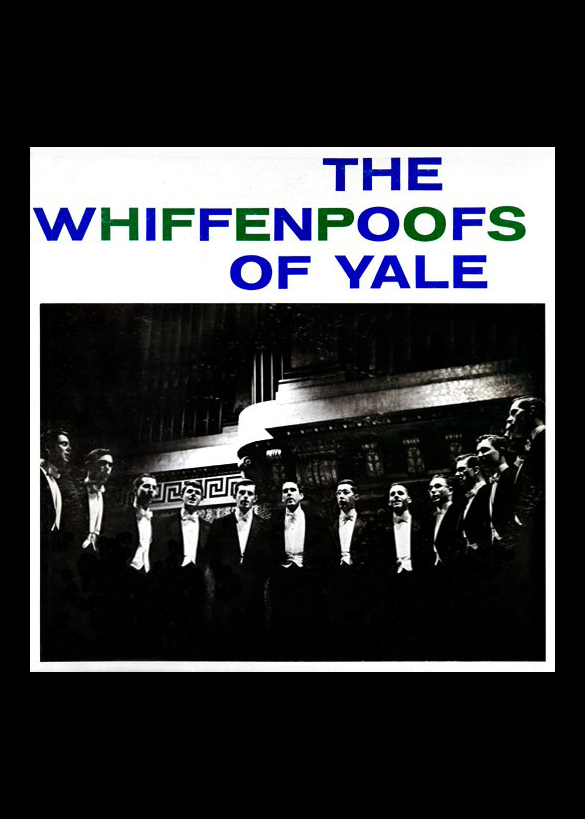
In recent years, the Whiffenpoofs have continued to evolve, incorporating modern arrangements and diverse musical genres into their performances. Their commitment to musical excellence and their dedication to preserving their rich tradition have made them a beloved and respected group within the Yale community and beyond.
The Yale Whiffenpoofs’ legacy of musical excellence, their extensive touring schedule, and their commitment to tradition make them a unique and cherished part of the Yale experience. Their performances not only entertain but also inspire, leaving a lasting impact on all who have the pleasure of hearing them.
AUTUMN DEBASSIGE

AUTUMN DEBASSIGE is a mezzo-soprano of First Nations heritage based in southern Ontario.
Born in Sudbury, Canada and raised in Orillia, Autumn is a mezzo-soprano of First Nations heritage based in southern Ontario.
A versatile freelance soloist, Autumn has been featured by 4th Wall Music, Guelph Chamber Choir, The Cellar Singers, Spiritus Ensemble and by the Elora Festival in the inaugural roster of their Summer Vocal Program in Ensemble and Solo Singing. She has appeared on stage at Niagara’s former Oh Canada Eh Dinner Theatre in their Broadway Showstoppers production and performed in Windsor Symphony Orchestra’s Wild,Wild West and Fiddlin’ Around concerts. In March 2023, Autumn made her operatic debut as Conversa II in Puccini’s Suor Angelica with Grand River Opera, though most recently she has been alto soloist for the premiere of Justin Lapierre’s Stabat Mater, under the direction of Ben Wallace, and for Symphony in the Barn’s signature Messiah Amongst the Cows.
Autumn is an active recitalist with a ‘rich and expressive’ voice, whose performances have been described as ‘lovely and stylish…wonderful, varied and consistently engaging.’ In the past year she has sung in concert series at Symphony in the Barn (Hanover), St. Andrew’s (Kitchener), First United Church (Waterloo), St. Paul’s Cathedral (London), St. James’ (Orillia), Yorkminster Park (Toronto), St. John’s (Kitchener), and St. James Cathedral (Toronto).
CHRISTINE EBERSOLE
CHRISTINE EBERSOLE is a versatile and accomplished American actress, singer, and comedian, born on February 21, 1953, in Winnetka, Illinois. She began her career on stage, making her Broadway debut in 1975 with the play Angel Street. Over the years, she has garnered critical acclaim for her performances in musicals, winning two Tony Awards for Best Actress in a Musical for her roles in 42nd Street (2001) and Grey Gardens (2006).
Ebersole’s career spans across film, television, and theater. She made her film debut in the romantic comedy Tootsie (1982) and went on to appear in notable films such as Amadeus (1984), The Wolf of Wall Street (2013), and Licorice Pizza (2021). On television, she has been a part of various shows, including Saturday Night Live (1981-1982), Ryan’s Hope (1977-1980), and Bob Hearts Abishola (2019-2024).
Ebersole’s talent extends beyond acting; she has also showcased her singing abilities in various productions and received a Drama Desk Award for her work in Grey Gardens. Her contributions to the entertainment industry have been recognized with multiple nominations and awards, solidifying her status as a respected and beloved performer.
Throughout her career, Christine Ebersole has demonstrated her versatility and dedication to her craft, earning her a place among the most talented and celebrated artists in the industry. Her journey from Broadway to Hollywood and back again is a testament to her enduring passion and commitment to performing arts.
JORDAN ASMUSSEN

JORDAN ASMUSSEN is a jazz pianist and singer from Brisbane, Australia. He is passionate about jazz music and regularly performs at Mr. Vain, a restaurant in Brisbane on Wednesday and Thursday evenings. He is a champion of pop standards and the Great American Songbook. Among his recordings is JEROME MOROSS’S LAZY AFTERNOON, where he plays piano with CHRIS JAMES on alto sax. Jordan adds a very interesting vocal interpretation. You can find his music and performances on platforms like YouTube and Instagram. He has a YouTube channel where he plays and sings jazz standards.